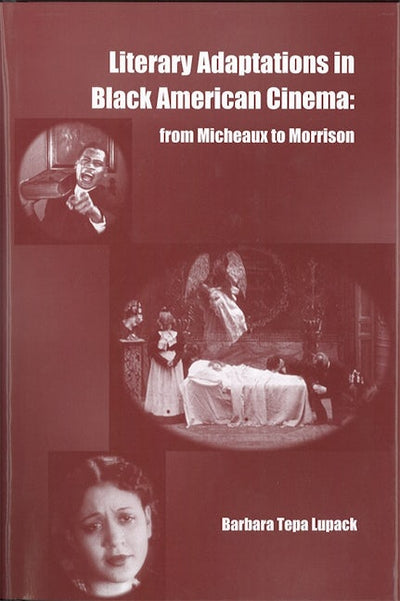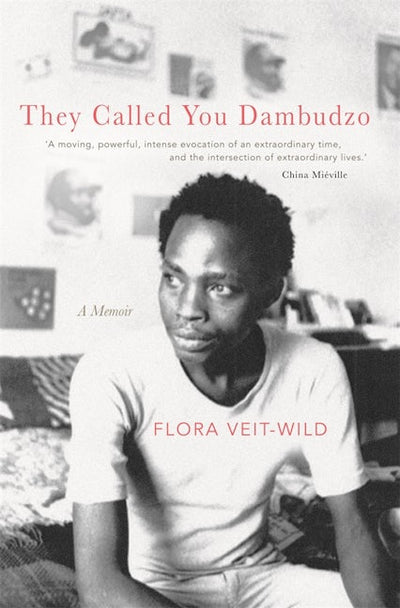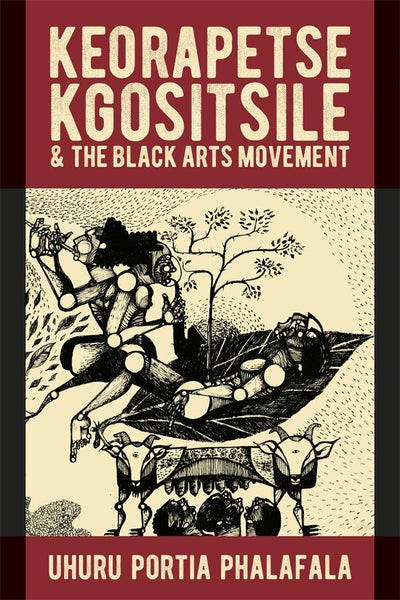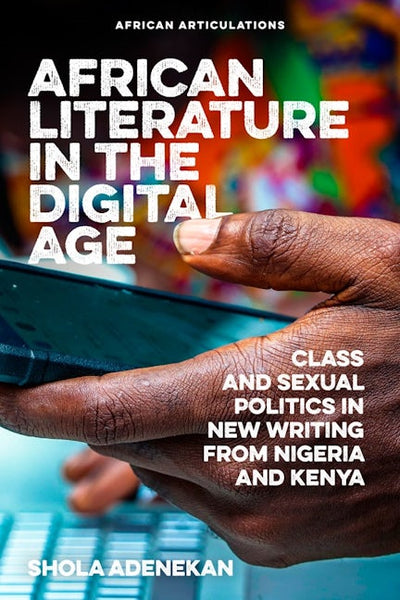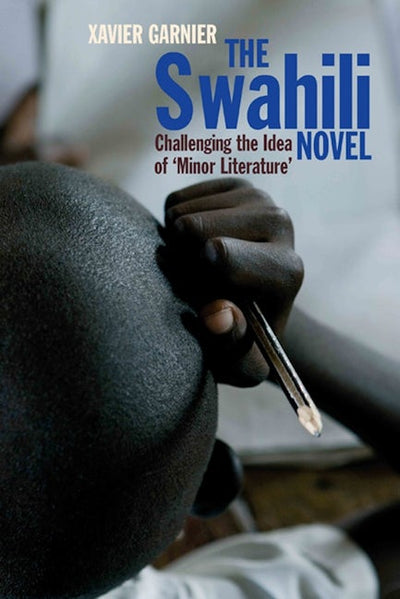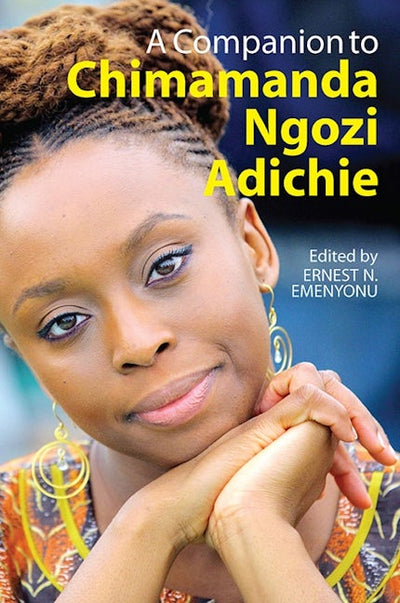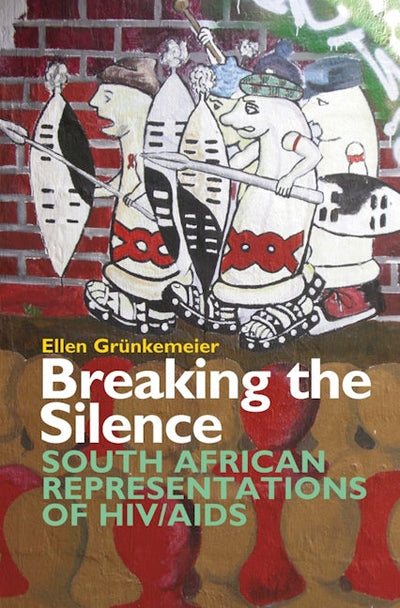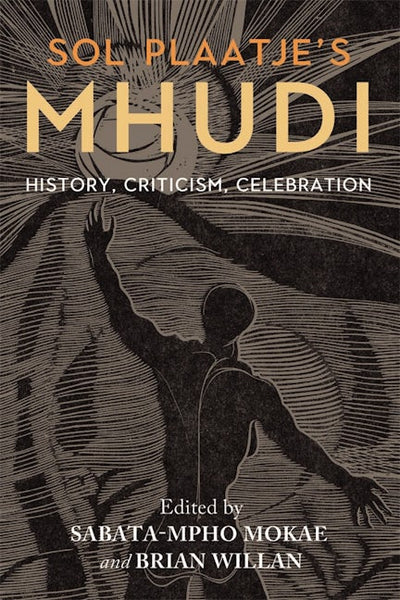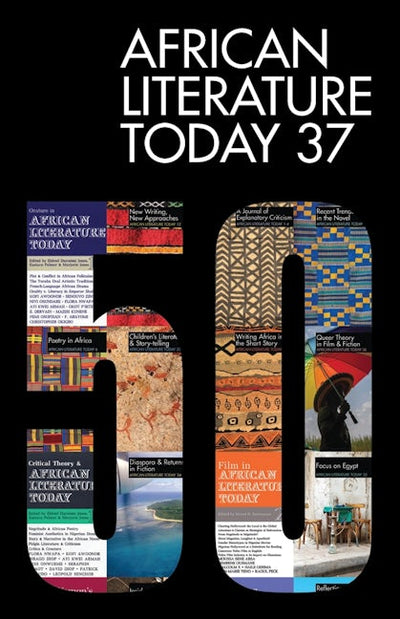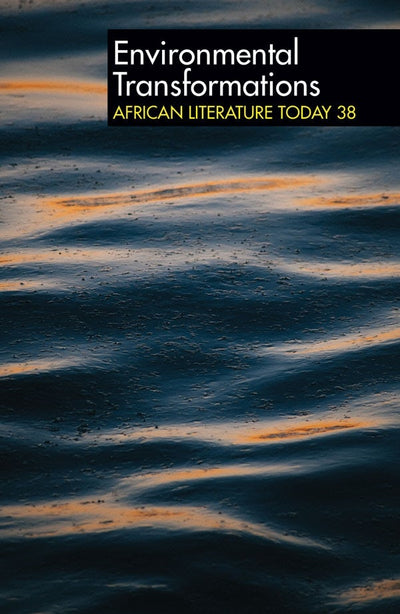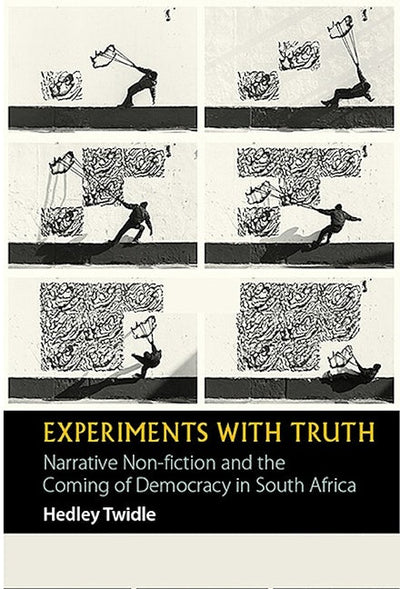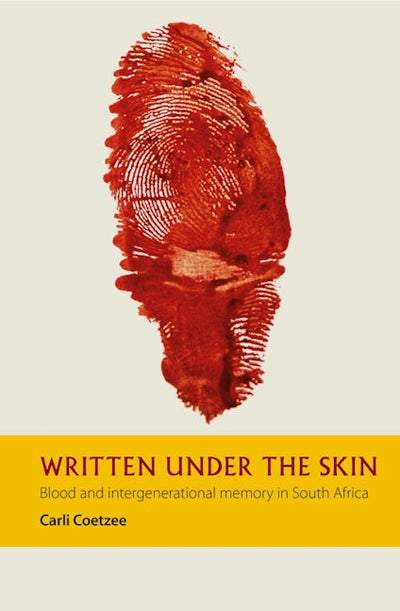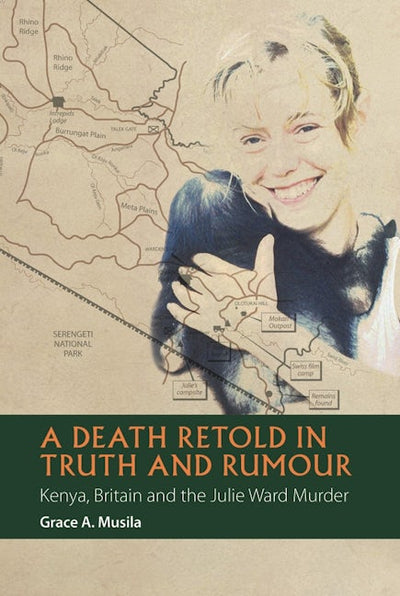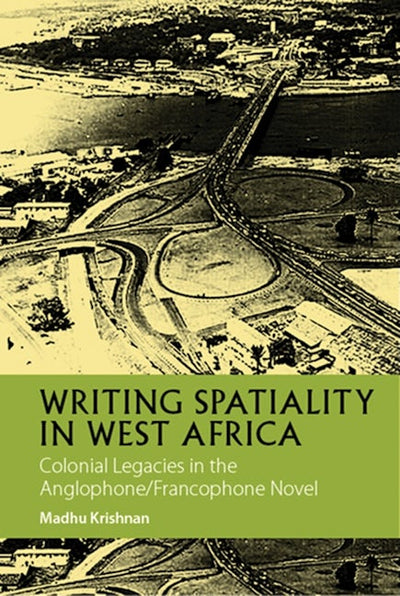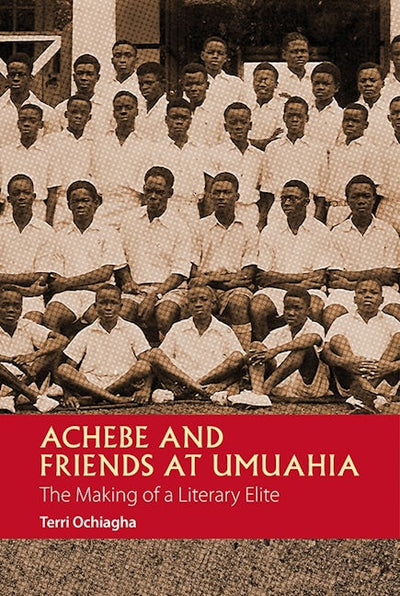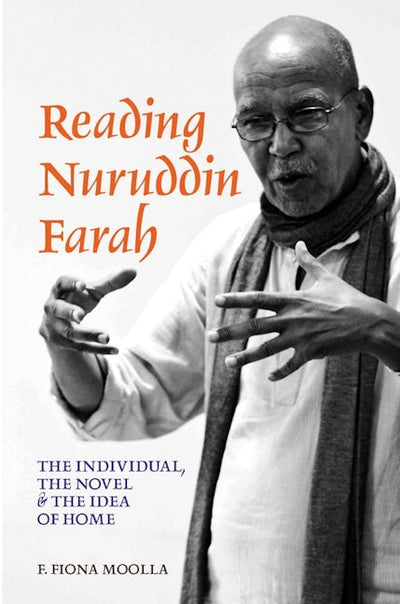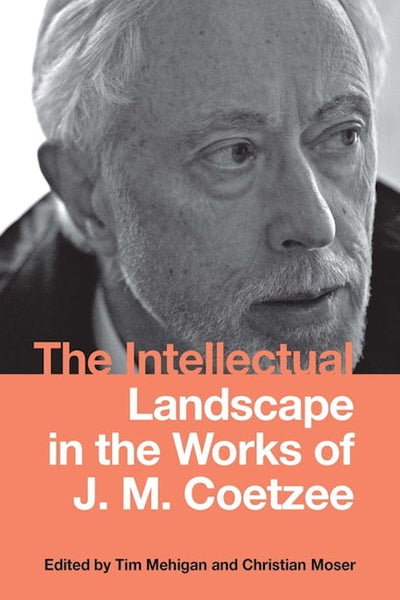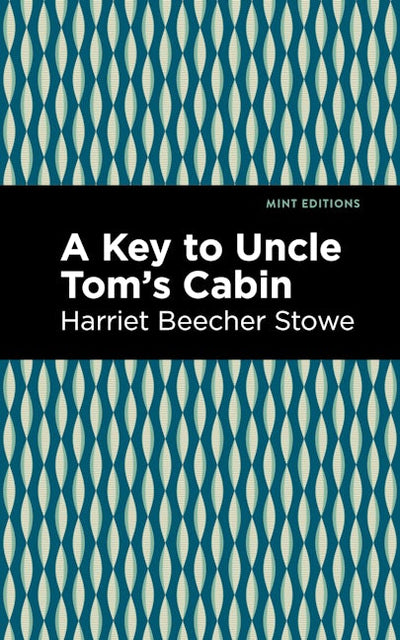-
Antiques & Collectibles
-
Architecture
-
Art
-
Bibles
-
Biography & Autobiography
-
Body, Mind & Spirit
-
Business & Economics
-
Comics & Graphic Novels
-
Computers
-
Cooking
-
Crafts & Hobbies
-
Design
-
Education
-
Family & Relationship
-
Fiction
-
Foreign Language Study
-
Games & Activities
-
Gardening
-
Health & Fitness
-
History
-
House & Home
-
Humor
-
Juvenile Fiction
-
Juvenile Nonfiction
-
Language Arts & Disciplines
-
Law
-
Literary Collections
-
Literary Criticism
-
Mathematics
-
Medical
-
Miscellaneous
-
Music
-
Nature
-
Performing Arts
-
Pets
-
Philosophy
-
Photography
-
Poetry
-
Political Science
-
Psychology
-
Reference
-
Religion
-
Self-Help
-
Science
-
Social Science
-
Sports & Recreation
-
Study Aids
-
Technology & Engineering
-
Transportation
-
Travel
-
True Crime
-
Young Adult Fiction
-
Young Adult Nonfiction
-
Antiques & Collectibles
-
Architecture
-
Art
-
Bibles
-
Biography & Autobiography
-
Body, Mind & Spirit
-
Business & Economics
-
Comics & Graphic Novels
-
Computers
-
Cooking
-
Crafts & Hobbies
-
Design
-
Education
-
Family & Relationship
-
Fiction
-
Foreign Language Study
-
Games & Activities
-
Gardening
-
Health & Fitness
-
History
-
House & Home
-
Humor
-
Juvenile Fiction
-
Juvenile Nonfiction
-
Language Arts & Disciplines
-
Law
-
Literary Collections
-
Literary Criticism
-
Mathematics
-
Medical
-
Miscellaneous
-
Music
-
Nature
-
Performing Arts
-
Pets
-
Philosophy
-
Photography
-
Poetry
-
Political Science
-
Psychology
-
Reference
-
Religion
-
Self-Help
-
Science
-
Social Science
-
Sports & Recreation
-
Study Aids
-
Technology & Engineering
-
Transportation
-
Travel
-
True Crime
-
Young Adult Fiction
-
Young Adult Nonfiction
Representing the Race
Regular price $107.00 Save $-107.00The political value of African American literature has long been a topic of great debate among American writers, both black and white, from Thomas Jefferson to Barack Obama. In his compelling new book, Representing the Race, Gene Andrew Jarrett traces the genealogy of this topic in order to develop an innovative political history of African American literature. Jarrett examines texts of every sort—pamphlets, autobiographies, cultural criticism, poems, short stories, and novels—to parse the myths of authenticity, popular culture, nationalism, and militancy that have come to define African American political activism in recent decades. He argues that unless we show the diverse and complex ways that African American literature has transformed society, political myths will continue to limit our understanding of this intellectual tradition.
Cultural forums ranging from the printing press, schools, and conventions, to parlors, railroad cars, and courtrooms provide the backdrop to this African American literary history, while the foreground is replete with compelling stories, from the debate over racial genius in early American history and the intellectual culture of racial politics after slavery, to the tension between copyright law and free speech in contemporary African American culture, to the political audacity of Barack Obama’s creative writing. Erudite yet accessible, Representing the Race is a bold explanation of what’s at stake in continuing to politicize African American literature in the new millennium.

Neither Fugitive nor Free
Regular price $107.00 Save $-107.00Part of the American Literatures Initiative Series
Neither Fugitive nor Free draws on the freedom suit as recorded in the press and court documents to offer a critically and historically engaged understanding of the freedom celebrated in the literary and cultural histories of transatlantic abolitionism. Freedom suits involved those enslaved valets, nurses, and maids who accompanied slaveholders onto free soil. Once brought into a free jurisdiction, these attendants became informally free, even if they were taken back to a slave jurisdiction—at least according to abolitionists and the enslaved themselves. In order to secure their freedom formally, slave attendants or others on their behalf had to bring suit in a court of law.
Edlie Wong critically recuperates these cases in an effort to reexamine and redefine the legal construction of freedom, will, and consent. This study places such historically central anti-slavery figures as Frederick Douglass, Olaudah Equiano, and William Lloyd Garrison alongside such lesser-known slave plaintiffs as Lucy Ann Delaney, Grace, Catharine Linda, Med, and Harriet Robinson Scott. Situated at the confluence of literary criticism, feminism, and legal history, Neither Fugitive nor Free presents the freedom suit as a "new" genre to African American and American literary studies.

Mastering Slavery
Regular price $107.00 Save $-107.00In Mastering Slavery, Fleischner draws upon a range of disciplines, including psychoanalysis, African-American studies, literary theory, social history, and gender studies, to analyze how the slave narratives--in their engagement with one another and with white women's antislavery fiction--yield a far more amplified and complicated notion of familial dynamics and identity than they have generally been thought to reveal. Her study exposes the impact of the entangled relations among master, mistress, slave adults and slave children on the sense of identity of individual slave narrators. She explores the ways in which our of the social, psychological, biological--and literary--crossings and disruptions slavery engendered, these autobiographers created mixed, dynamic narrative selves.

Extravagant Abjection
Regular price $107.00 Save $-107.00Part of the American Literatures Initiative Series
2011 Winner of the Alan Bray Memorial Book Award presented by the Modern Language Association
Challenging the conception of empowerment associated with the Black Power Movement and its political and intellectual legacies in the present, Darieck Scott contends that power can be found not only in martial resistance, but, surprisingly, where the black body has been inflicted with harm or humiliation.
Theorizing the relation between blackness and abjection by foregrounding often neglected depictions of the sexual exploitation and humiliation of men in works by James Weldon Johnson, Toni Morrison, Amiri Baraka, and Samuel R. Delany, Extravagant Abjection asks: If we’re racialized through domination and abjection, what is the political, personal, and psychological potential in racialization-through-abjection? Using the figure of male rape as a lens through which to examine this question, Scott argues that blackness in relation to abjection endows its inheritors with a form of counter-intuitive power—indeed, what can be thought of as a revised notion of black power. This power is found at the point at which ego, identity, body, race, and nation seem to reveal themselves as utterly penetrated and compromised, without defensible boundary. Yet in Extravagant Abjection, “power” assumes an unexpected and paradoxical form.
In arguing that blackness endows its inheritors with a surprising form of counter–intuitive power—as a resource for the political present—found at the very point of violation, Extravagant Abjection enriches our understanding of the construction of black male identity.

An Anthology of Interracial Literature
Regular price $107.00 Save $-107.00A white knight meets his half-black half-brother in battle. A black hero marries a white woman. A slave mother kills her child by a rapist-master. A white-looking person of partly African ancestry passes for white. A master and a slave change places for a single night. An interracial marriage turns sour. The birth of a child brings a crisis. Such are some of the story lines to be found within the pages of An Anthology of Interracial Literature.
This is the first anthology to explore the literary theme of black-white encounters, of love and family stories that crossor are crossed bywhat came to be considered racial boundaries. The anthology extends from Cleobolus' ancient Greek riddle to tormented encounters in the modern United States, visiting along the way a German medieval chivalric romance, excerpts from Arabian Nights and Italian Renaissance novellas, scenes and plays from Spain, Denmark, England, and the United States, as well as essays, autobiographical sketches, and numerous poems. The authors of the selections include some of the great names of world literature interspersed with lesser-known writers. Themes of interracial love and family relations, passing, and the figure of the Mulatto are threaded through the volume.
An Anthology of Interracial Literature allows scholars, students, and general readers to grapple with the extraordinary diversity in world literature. As multi-racial identification becomes more widespread the ethnic and cultural roots of world literature takes on new meaning.
Contributors include: Hans Christian Andersen, Gwendolyn Brooks, Elizabeth Barrett Browning, Charles W. Chesnutt, Lydia Maria Child, Kate Chopin, Countee Cullen, Caroline Bond Day, Rita Dove, Alexandre Dumas, Olaudah Equiano, Langston Hughes, Victor Hugo, Charles Johnson, Adrienne Kennedy, Henry Wadsworth Longfellow, Guy de Maupassant, Claude McKay, Eugene O'Neill, Alexander Pushkin, and Jean Toomer.

African American Literary Theory
Regular price $119.00 Save $-119.00The first volume to expound African American literary theory from the 1920s to present
African American Literary Theory: A Reader is the first volume to document the central texts and arguments in African American literary theory from the 1920s through the present. As the volume progresses chronologically from the rise of a black aesthetic criticism, through the Blacks Arts Movement, feminism, structuralism and poststructuralism, and the rise of queer theory, it focuses on the key arguments, themes, and debates in each period.
By constantly bringing attention to the larger political and cultural issues at stake in the interpretation of literary texts, the critics gathered here have contributed mightily to the prominence and popularity of African American literature in this country and abroad. African American Literary Theory provides a unique historical analysis of how these thinkers have shaped literary theory, and literature at large, and will be a indispensable text for the study of African American intellectual culture.
Contributors include Sandra Adell, Michael Awkward, Houston A. Baker, Jr., Hazel V. Carby, Barbara Christian, W.E.B. DuBois, Ann duCille, Ralph Ellison, Henry Louis Gates, Jr., Addison Gayle Jr., Carolyn F. Gerald, Evelynn Hammonds, Phillip Brian Harper, Mae Gwendolyn Henderson, Stephen E. Henderson, Karla F.C. Holloway, Langston Hughes, Zora Neale Hurston, LeRoi Jones (Amiri Baraka), Joyce A. Joyce, Alain Locke, Wahneema Lubiano, Deborah E. McDowell, Harryette Mullen, Larry Neal, Charles I. Nero, Robert F. Reid-Pharr, Marlon B. Ross, George S. Schuyler, Barbara Smith, Valerie Smith, Hortense J. Spillers, Sherley Anne Williams, and Richard Wright.

Turn the World Upside Down
Regular price $130.00 Save $-130.00Honorable Mention, 2024 Gordon K. and Sybil Lewis Award, Caribbean Studies Association
Shortlisted, 2024 MSA Prize for a First Book, Modernist Studies Association
In the first half of the twentieth century, Black hemispheric culture grappled with the legacies of colonialism, U.S. empire, and Jim Crow. As writers and performers sought to convey the terror and the beauty of Black life under oppressive conditions, they increasingly turned to the labor, movement, speech, sound, and ritual of everyday “folk.” Many critics have perceived these representations of folk culture as efforts to reclaim an authentic past. Imani D. Owens recasts Black creators’ relationship to folk culture, emphasizing their formal and stylistic innovations and experiments in self-invention that reach beyond the local to the world.
Turn the World Upside Down explores how Black writers and performers reimagined folk forms through the lens of the unruly—that which cannot be easily governed, disciplined, or managed. Drawing on a transnational and multilingual archive—from Harlem to Havana, from the Panama Canal Zone to Port-au-Prince—Owens considers the short stories of Eric Walrond and Jean Toomer; the ethnographies of Zora Neale Hurston and Jean Price-Mars; the recited poetry of Langston Hughes, Nicolás Guillén, and Eusebia Cosme; and the essays, dance work, and radio plays of Sylvia Wynter. Owens shows how these figures depict folk culture—and Blackness itself—as a site of disruption, ambiguity, and flux. Their works reveal how Black people contribute to the stirrings of modernity while being excluded from its promises. Ultimately, these works do not seek to render folk culture more knowable or worthy of assimilation, but instead provide new forms of radical world-making.

Sacred Fire
Regular price $34.95 Save $-34.95"From critiques of W. E. B. Du Bois's Black Reconstruction in America to Alex Haley's Roots to Langston Hughes's The Ways of White Folks, these short, trenchant essays stimulate and challenge."-Booklist
"A celebration of black literature. . .insightful commentary."-Ebony
"A rich and surprising assortment." -American Legacy
"Delving into a book is an entertaining and edifying way to celebrate and reflect on the rich tapestry of African American history. A great way to start is with Sacred Fire: The QBR 100 Essential Black Books." -Atlanta Journal-Constitution
Capturing the full sweep of writing from the diaspora--from Africa to the Caribbean to America--Sacred Fire is a soul-stirring collection of provocative analysis on 100 works of literature that have shaped and defined black culture for over 200 years.

Literary Adaptations in Black American Cinema:
Regular price $120.00 Save $-120.00The cinematic representation of blacks, especially in silent and early film, was shaped not only by the sentimental racism of the culture but also by the popular literature which distorted black experience and restricted black characters to minor, stereotyped roles. By contrast, in the works of black writers from Oscar Micheaux to Toni Morrison, the black experience has been more fully, more accurately, and usually more sympathetically realized; and from the early days of film, select filmmakers have looked to that literature as the basis for their productions.
An historical examination of the practice of such adaptation offers telling insights into the portrayal -- andprogress -- of blacks in American movies and culture. It reveals that while blacks, on screen and behind the scenes, were often forced to re-create the demeaning film stereotypes, they learned how to subvert and exploit the artificiality of their caricatures. It also reveals the ways that black filmmakers, beginning with Micheaux, Noble and George Johnson, and their less prominent colleagues like Emmett Scott, worked within the conventions of cinema and society, yet managed to produce films that were, at their best, unconventional and pioneering. It demonstrates that as far back as the 1920s and 1930s, black authors like Paul Laurence Dunbar and Langston Hughes already recognized the need for involvement with film production in order to create pictures that were more representative of black life. It illustrates the fact that, in recent years, as more black voices found their way to the screen, among the strongest were the voices of women. And above all, it confirms that within the rich tradition of black literature of all genres lie many exciting cinematic possibilities for audiences of all colors.
Barbara Tepa Lupack haswritten extensively on the topic of literary adaptations in cinema and is co-author (with Alan Lupack) of King Arthur in America.

The Critical Reception of James Baldwin, 1963-2010
Regular price $120.00 Save $-120.00James Baldwin is a widely taught and anthologized author. His short story "Sonny's Blues" remains a perennial favorite in literature anthologies, and all of his essay collections and novels are still in print. His first essay collection, Notes of a Native Son, is a seminal work that led a new generation of African American writers from beneath the shadow of Richard Wright. The Fire Next Time is widely held as one of the most profound and accurate articulations of black consciousness during the Civil Rights movement. It is difficult to imagine teaching a survey of African American literature or considering the development of black intellectual thought in the twentiethcentury without mentioning Baldwin.
For more than half a century, readers and critics alike have agreed that Baldwin is a major African American writer. What they do not agree on is why. Because of his artistic and intellectual complexity, his work resists easy categorization, and Baldwin scholarship, consequently, spans the critical horizon. Conseula Francis's book examines the major divisions in Baldwin criticism, paying particular attention to theway each critical period defines Baldwin and his work for its own purposes.
Conseula Francis is Professor of English and Associate Provost for Curriculum and Institutional Resources at the College of Charleston.

Black Women Writers at Work
Regular price $55.00 Save $-55.00“Black women writers and critics are acting on the old adage that one must speak for oneself if one wishes to be heard.” —Claudia Tate, from the introduction
Long out-of-print, Black Women Writers at Work is a vital contribution to Black literature in the 20th century.
Through candid interviews with Maya Angelou, Toni Cade Bambara, Gwendolyn Brooks, Alexis De Veaux, Nikki Giovanni, Kristin Hunter, Gayl Jones, Audre Lorde, Toni Morrison, Sonia Sanchez, Ntozake Shange, Alice Walker, Margaret Walker, and Sherley Anne Williams, the book highlights the practices and critical linkages between the work and lived experiences of Black women writers whose contributions to the literary world laid the foundation for many who have come after.
Responding to questions about why and for whom they write, and how they perceive their responsibility to their work, to others, and to society, the featured playwrights, poets, novelists, and essayists provide a window into the connections between their lives and their art.
Finally available for a new generation, this classic work has an urgent message for readers and writers today.

The Racial Unfamiliar
Regular price $140.00 Save $-140.00The works of African American authors and artists are too often interpreted through the lens of authenticity. They are scrutinized for “positive” or “negative” representations of Black people and Black culture or are assumed to communicate some truth about Black identity or the “Black experience.” However, many contemporary Black artists are creating works that cannot be slotted into such categories. Their art resists interpretation in terms of conventional racial discourse; instead, they embrace opacity, uncertainty, and illegibility.
John Brooks examines a range of abstractionist, experimental, and genre-defying works by Black writers and artists that challenge how audiences perceive and imagine race. He argues that literature and visual art that exceed the confines of familiar conceptions of Black identity can upend received ideas about race and difference. Considering photography by Roy DeCarava, installation art by Kara Walker, novels by Percival Everett and Paul Beatty, drama by Suzan-Lori Parks, and poetry by Robin Coste Lewis, Brooks pinpoints a shared aesthetic sensibility. In their works, the devices that typically make race feel familiar are instead used to estrange cultural assumptions about race. Brooks contends that when artists confound expectations about racial representation, the resulting disorientation reveals the incoherence of racial ideologies. By showing how contemporary literature and art ask audiences to question what they think they know about race, The Racial Unfamiliar offers a new way to understand African American cultural production.

Antagonistic Cooperation
Regular price $120.00 Save $-120.00Winner, 2023 Columbia University Press Distinguished Book Award
Finalist, 2023 Pauli Murray Book Prize in Black Intellectual History, African American Intellectual History Society
Shortlisted, Historical Nonfiction Legacy Award, Hurston / Wright Foundation
Ralph Ellison famously characterized ensemble jazz improvisation as “antagonistic cooperation.” Both collaborative and competitive, musicians play with and against one another to create art and community. In Antagonistic Cooperation, Robert G. O’Meally shows how this idea runs throughout twentieth-century African American culture to provide a new history of Black creativity and aesthetics.
From the collages of Romare Bearden and paintings of Jean-Michel Basquiat to the fiction of Ralph Ellison and Toni Morrison to the music of Louis Armstrong and Duke Ellington, O’Meally explores how the worlds of African American jazz, art, and literature have informed one another. He argues that these artists drew on the improvisatory nature of jazz and the techniques of collage not as a way to depict a fractured or broken sense of Blackness but rather to see the Black self as beautifully layered and complex. They developed a shared set of methods and motives driven by the belief that art must involve a sense of community. O’Meally’s readings of these artists and their work emphasize how they have not only contributed to understanding of Black history and culture but also provided hope for fulfilling the broken promises of American democracy.

Shadow Archives
Regular price $105.00 Save $-105.00Recasting the history of African American literature, Shadow Archives brings to life a slew of newly discovered texts—including Claude McKay’s Amiable with Big Teeth—to tell the stories of black special collections and their struggle for institutional recognition. Jean-Christophe Cloutier offers revelatory readings of major African American writers, including McKay, Richard Wright, Ann Petry, and Ralph Ellison, and provides a nuanced view of how archival methodology, access, and the power dynamics of acquisitions shape literary history.
Shadow Archives argues that the notion of the archive is crucial to our understanding of postwar African American literary history. Cloutier combines his own experiences as a researcher and archivist with a theoretically rich account of the archive to offer a pioneering study of the importance of African American authors’ archival practices and how these shaped their writing. Given the lack of institutions dedicated to the black experience, the novel became an alternative site of historical preservation, a means to ensure both individual legacy and group survival. Such archivism manifests in the work of these authors through evolving lifecycles where documents undergo repurposing, revision, insertion, falsification, transformation, and fictionalization, sometimes across decades. An innovative interdisciplinary consideration of literary papers, Shadow Archives proposes new ways for literary scholars to engage with the archive.

Black Utopia
Regular price $80.00 Save $-80.00Within the history of African American struggle against racist oppression that often verges on dystopia, a hidden tradition has depicted a transfigured world. Daring to speculate on a future beyond white supremacy, black utopian artists and thinkers offer powerful visions of ways of being that are built on radical concepts of justice and freedom. They imagine a new black citizen who would inhabit a world that soars above all existing notions of the possible.
In Black Utopia, Alex Zamalin offers a groundbreaking examination of African American visions of social transformation and their counterutopian counterparts. Considering figures associated with racial separatism, postracialism, anticolonialism, Pan-Africanism, and Afrofuturism, he argues that the black utopian tradition continues to challenge American political thought and culture. Black Utopia spans black nationalist visions of an ideal Africa, the fiction of W. E. B. Du Bois, and Sun Ra’s cosmic mythology of alien abduction. Zamalin casts Samuel R. Delany and Octavia E. Butler as political theorists and reflects on the antiutopian challenges of George S. Schuyler and Richard Wright. Their thought proves that utopianism, rather than being politically immature or dangerous, can invigorate political imagination. Both an inspiring intellectual history and a critique of present power relations, this book suggests that, with democracy under siege across the globe, the black utopian tradition may be our best hope for combating injustice.

What Else but Love?
Regular price $105.00 Save $-105.00
We Wear the Mask
Regular price $110.00 Save $-110.00
Wrestling with the Muse
Regular price $65.00 Save $-65.00And as I groped in darkness
and felt the pain of millions,
gradually, like day driving night across the continent,
I saw dawn upon them like the sun a vision.
—Dudley Randall, from "Roses and Revolutions"
In 1963, the African American poet Dudley Randall (1914–2000) wrote "The Ballad of Birmingham" in response to the bombing of a church in Alabama that killed four young black girls, and "Dressed All in Pink," about the assassination of President Kennedy. When both were set to music by folk singer Jerry Moore in 1965, Randall published them as broadsides. Thus was born the Broadside Press, whose popular chapbooks opened the canon of American literature to the works of African American writers.
Dudley Randall, one of the great success stories of American small-press history, was also poet laureate of Detroit, a civil-rights activist, and a force in the Black Arts Movement. Melba Joyce Boyd was an editor at Broadside, was Randall's friend and colleague for twenty-eight years, and became his authorized biographer. Her book is an account of the interconnections between urban and labor politics in Detroit and the broader struggles of black America before and during the Civil Rights era. But also, through Randall's poetry and sixteen years of interviews, the narrative is a multipart dialogue between poets, Randall, the author, and the history of American letters itself, and it affords unique insights into the life and work of this crucial figure.

Uptown Conversation
Regular price $120.00 Save $-120.00Jackson Pollock dancing to the music as he painted; Romare Bearden's stage and costume designs for Alvin Ailey and Dianne McIntyre; Stanley Crouch stirring his high-powered essays in a room where a drumkit stands at the center: from the perspective of the new jazz studies, jazz is not only a music to define—it is a culture. Considering musicians and filmmakers, painters and poets, the intellectual improvisations in Uptown Conversation reevaluate, reimagine, and riff on the music that has for more than a century initiated a call and response across art forms, geographies, and cultures.
Building on Robert G. O'Meally's acclaimed Jazz Cadence of American Culture, these original essays offer new insights in jazz historiography, highlighting the political stakes in telling the story of the music and evaluating its cultural import in the United States and worldwide. Articles contemplating the music's experimental wing—such as Salim Washington's meditation on Charles Mingus and the avant-garde or George Lipsitz's polemical juxtaposition of Ken Burns's documentary Jazz and Horace Tapscott's autobiography Songs of the Unsung—share the stage with revisionary takes on familiar figures in the canon: Thelonious Monk, Miles Davis, Duke Ellington, and Louis Armstrong.

Burnin' Down the House
Regular price $115.00 Save $-115.00Home is a powerful metaphor guiding the literature of African Americans throughout the twentieth century. While scholars have given considerable attention to the Great Migration and the role of the northern city as well as to the place of the South in African American literature, few have given specific notice to the site of "home." And in the twenty years since Houston A. Baker Jr.'s Blues, Ideology, and Afro-American Literature appeared, no one has offered a substantial challenge to his reading of the blues matrix.
Burnin' Down the House creates new and sophisticated possibilities for a critical engagement with African American literature by presenting both a meaningful critique of the blues matrix and a careful examination of the place of home in five classic novels: Native Son by Richard Wright, Invisible Man by Ralph Ellison, The Bluest Eye and Song of Solomon by Toni Morrison, and Corregidora by Gayl Jones.

Betrayal
Regular price $105.00 Save $-105.00Houston A. Baker Jr. condemns those black intellectuals who, he believes, have turned their backs on the tradition of racial activism in America. These individuals choose personal gain over the interests of the black majority, whether they are espousing neoconservative positions that distort the contours of contemporary social and political dynamics or abandoning race as an important issue in the study of American literature and culture. Most important, they do a disservice to the legacy of W. E. B. Du Bois, Martin Luther King Jr., and others who have fought for black rights.
In the literature, speeches, and academic and public behavior of some black intellectuals in the past quarter century, Baker identifies a "hungry generation" eager for power, respect, and money. Baker critiques his own impoverished childhood in the "Little Africa" section of Louisville, Kentucky, to understand the shaping of this new public figure. He also revisits classical sites of African American literary and historical criticism and critique. Baker devotes chapters to the writing and thought of such black academic superstars as Cornel West, Michael Eric Dyson, and Henry Louis Gates Jr.; Hoover Institution senior fellow Shelby Steele; Yale law professor Stephen Carter; and Manhattan Institute fellow John McWhorter. His provocative investigation into their disingenuous posturing exposes what Baker deems a tragic betrayal of King's legacy.
Baker concludes with a discussion of American myth and the role of the U.S. prison-industrial complex in the "disappearing" of blacks. Baker claims King would have criticized these black intellectuals for not persistently raising their voices against a private prison system that incarcerates so many men and women of color. To remedy this situation, Baker urges black intellectuals to forge both sacred and secular connections with local communities and rededicate themselves to social responsibility. As he sees it, the mission of the black intellectual today is not to do great things but to do specific, racially based work that is in the interest of the black majority.

The Racial Discourses of Life Philosophy
Regular price $105.00 Save $-105.00In the early twentieth century, the life philosophy of Henri Bergson summoned the élan vital, or vital force, as the source of creative evolution. Bergson also appealed to intuition, which focused on experience rather than discursive thought and scientific cognition. Particularly influential for the literary and political Négritude movement of the 1930s, which opposed French colonialism, Bergson's life philosophy formed an appealing alternative to Western modernity, decried as "mechanical," and set the stage for later developments in postcolonial theory and vitalist discourse.
Revisiting narratives on life that were produced in this age of machinery and war, Donna V. Jones shows how Bergson, Nietzsche, and the poets Leopold Senghor and Aimé Césaire fashioned the concept of life into a central aesthetic and metaphysical category while also implicating it in discourses on race and nation. Jones argues that twentieth-century vitalism cannot be understood separately from these racial and anti-Semitic discussions. She also shows that some dominant models of emancipation within black thought become intelligible only when in dialogue with the vitalist tradition. Jones's study strikes at the core of contemporary critical theory, which integrates these older discourses into larger critical frameworks, and she traces the ways in which vitalism continues to draw from and contribute to its making.

The Other Blacklist
Regular price $55.00 Save $-55.00Mary Helen Washington recovers the vital role of 1950s leftist politics in the works and lives of modern African American writers and artists. While most histories of McCarthyism focus on the devastation of the blacklist and the intersection of leftist politics and American culture, few include the activities of radical writers and artists from the Black Popular Front. Washington's work incorporates these black intellectuals back into our understanding of mid-twentieth-century African American literature and art and expands our understanding of the creative ferment energizing all of America during this period.
Mary Helen Washington reads four representative writers—Lloyd Brown, Frank London Brown, Alice Childress, and Gwendolyn Brooks—and surveys the work of the visual artist Charles White. She traces resonances of leftist ideas and activism in their artistic achievements and follows their balanced critique of the mainstream liberal and conservative political and literary spheres. Her study recounts the targeting of African American as well as white writers during the McCarthy era, reconstructs the events of the 1959 Black Writers' Conference in New York, and argues for the ongoing influence of the Black Popular Front decades after it folded. Defining the contours of a distinctly black modernism and its far-ranging radicalization of American politics and culture, Washington fundamentally reorients scholarship on African American and Cold War literature and life.

Plagiarama!
Regular price $65.00 Save $-65.00William Wells Brown (1814–1884) was a vocal abolitionist, a frequent antagonist of Frederick Douglass, and the author of Clotel, the first known novel by an African American. He was also an extensive plagiarist, copying at least 87,000 words from close to 300 texts. In this critical study of Brown's work and legacy, Geoffrey Sanborn offers a novel reading of the writer's plagiarism, arguing the act was a means of capitalizing on the energies of mass-cultural entertainments popularized by showmen such as P. T. Barnum. By creating the textual equivalent of a variety show, Brown animated antislavery discourse and evoked the prospect of a pleasurably integrated world.
Brown's key dramatic protagonists were the "spirit of capitalization"—the unscrupulous double of Max Weber's spirit of capitalism—and the "beautiful slave girl," a light-skinned African American woman on the verge of sale and rape. Brown's unsettling portrayal of these figures unfolded within a riotous patchwork of second-hand texts, upset convention, and provoked the imagination. Could a slippery upstart lay the groundwork for a genuinely interracial society? Could the fetishized image of a not-yet-sold woman hold open the possibility of other destinies? Sanborn's analysis of pastiche and plagiarism adds new depth to the study of nineteenth-century culture and the history of African American literature, suggesting modes of African American writing that extend beyond narratives of necessity and purpose, characterized by the works of Frederick Douglass and others.

The Trouble with Post-Blackness
Regular price $37.00 Save $-37.00An America in which the color of one's skin no longer matters would be unprecedented. With the election of President Barack Obama in 2008, that future suddenly seemed possible. Obama's rise reflects a nation of fluid populations and fortunes, a society in which a biracial individual could be embraced as a leader by all. Yet complicating this vision are shifting demographics, rapid redefinitions of race, and the instant invention of brands, trends, and identities that determine how we think about ourselves and the place of others.
This collection of original essays confronts the premise, advanced by black intellectuals, that the Obama administration marked the start of a "post-racial" era in the United States. While the "transcendent" and post-racial black elite declare victory over America's longstanding codes of racial exclusion and racist violence, their evidence relies largely on their own salaries and celebrity. These essays strike at the certainty of those who insist that life, liberty, and the pursuit of happiness are now independent of skin color and race in America. They argue, signify, and testify that "post-blackness" is a problematic mythology masquerading as fact—a dangerous new "race science" motivated by black transcendentalist individualism. Through rigorous analysis, these essays expose the idea of a post-racial nation as a pleasurable entitlement for a black elite, enabling them to reject the ethics and urgency of improving the well-being of the black majority.

The Ethnic Avant-Garde
Regular price $65.00 Save $-65.00During the 1920s and 1930s, American minority artists and writers collaborated extensively with the Soviet avant-garde, seeking to build a revolutionary society that would end racial discrimination and advance progressive art. Making what Claude McKay called "the magic pilgrimage" to the Soviet Union, these intellectuals placed themselves at the forefront of modernism, using radical cultural and political experiments to reimagine identity and decenter the West.
Shining rare light on these efforts, The Ethnic Avant-Garde makes a unique contribution to interwar literary, political, and art history, drawing extensively on Russian archives, travel narratives, and artistic exchanges to establish the parameters of an undervalued "ethnic avant-garde." These writers and artists cohered around distinct forms that mirrored Soviet techniques of montage, fragment, and interruption. They orbited interwar Moscow, where the international avant-garde converged with the Communist International.
The book explores Vladimir Mayakovsky's 1925 visit to New York City via Cuba and Mexico, during which he wrote Russian-language poetry in an "Afro-Cuban" voice; Langston Hughes's translations of these poems while in Moscow, which he visited to assist on a Soviet film about African American life; a futurist play condemning Western imperialism in China, which became Broadway's first major production to feature a predominantly Asian American cast; and efforts to imagine the Bolshevik Revolution as Jewish messianic arrest, followed by the slow political disenchantment of the New York Intellectuals. Through an absorbing collage of cross-ethnic encounters that also include Herbert Biberman, Sergei Eisenstein, Paul Robeson, and Vladimir Tatlin, this work remaps global modernism along minority and Soviet-centered lines, further advancing the avant-garde project of seeing the world anew.

ALT 42: Oral and Written African Poetry and Poetics
Regular price $120.00 Save $-120.00Almost half a century after ALT 6 and thirty-three years after ALT 16, what is the state of poetry and poetics in Africa? This volume of ALT highlights major developments and continuities in the practice of the art of poetry in the continent. Contributions analyse new frontiers in the traditional African epic and the Yoruba oríkì genre and innovations in form and theme, such as 'spoken word poetry' shared on digital media and pandemic poetry in the wake of COVID-19. They compare and contrast the work of Romeo Oriogun, Christopher Okigbo, and Gabriel Okara and of T.S. Eliot and Kofi Anyidoho. Other essays examine the complexities of translation from Ewe into English and the development of oral African poetry, underscoring its dynamism and the centrality of performance. The volume also includes interviews with poets Kofi Anyidoho, Kwame Dawes, and Kehinde Akano and tributes to Ama Ata Aidoo. Altogether, it highlights the richness and vibrancy of contemporary praxis and points to future directions in the field.

Handbuch Literatur & Emotionen
Regular price $224.00 Save $-224.00Ohne Emotionen lässt sich Literatur weder schreiben noch lesen. Anders als die aktuelle Rede vom ‚emotional turn‘ suggeriert, steht das Nachdenken über Dichtung schon seit der Antike im Zeichen einer Reflexion über Pathos, Gefühl etc. Dieses Handbuch liefert eine zusammenfassende Darstellung, die diese lange Reflexionstradition in Bezug zu theoretischen Ansätzen des 20. und 21. Jahrhunderts setzt und an konkreten Fallstudien anschaulich macht.

Afrikanische Literatur und nationale Befreiung
Regular price $148.99 Save $-148.99
Afrikanistische Studien
Regular price $137.99 Save $-137.99
A Story of South Africa
Regular price $65.00 Save $-65.00With the publication of Age of Iron--winner of Britain's richest fiction prize, the Sunday Express Book of the Year for 1990--J. M. Coetzee is now recognized as one of the foremost writers of our day. In this timely study of Coetzee's fiction, Susan Gallagher places his work in the context of South African history and politics. Her close historical readings of Coetzee's six major novels explore how he lays bare the "dense complicity between thought and language" in South Africa.
Following a penetrating description of the unique difficulties facing writers under apartheid, Gallagher recounts how history, language, and authority have been used to marginalize the majority of South Africa's people. Her story reaches from the beginnings of Afrikaner nationalism to the recent past: the Sharpeville massacre, the jailing of Nelson Mandela, and the Soweto uprising.
As a result of his rejection of liberal and socialist realism, Coetzee has been branded an escapist, but Gallagher ably defends him from this charge. Her cogent, convincingly argued examination of his novels demonstrates that Coetzee's fictional response is "apocalyptic in the most profound Biblical sense, obscurely pointing toward ineffable realities transcending discursive definition." Viewing Coetzee's fiction in this context, Gallagher describes a new kind of novel "that arises out of history, but also rivals history." This analysis reveals Coetzee's novels to be profound responses to their time and place as well as richly rewarding investigations of the storyteller's art.

Koloniale Gewalt literarisch vermessen
Regular price $114.99 Save $-114.99Die komparatistische Studie von Lucia Weiß deutet drei Romane der zeitgenössischen Autoren Boubacar Boris Diop (Senegal) und Mia Couto (Mosambik) vor dem Horizont der historischen Erfahrung des Kolonialismus als literarische Vermessung von Gewalt. Der Begriff der Vermessung verweist historisch auf die gezielte Aufteilung Afrikas und auf die pseudo-wissenschaftlich fundierte Gewalt der europäischen Kolonialmächte.
Die Arbeit legt detailliert die ästhetische Komplexität des Erzählens von Diop und Couto frei, das durch vielfältige Formbezüge eine eigene Kartierung des weltliterarischen Feldes vornimmt. In drei Analysekapiteln arbeitet die Autorin heraus, wie ausgewählte Romane eine eigene Vermessung der kolonialen Geschichtserfahrung auf lange Sicht darstellen: Diops Roman Le Cavalier et son ombre fokalisiert Gewalt in ihrer Beziehung zur Zeit, Coutos Text O último voo do flamingo nimmt den Körper in den Blick und Diops Murambi, le livre des ossements konzentriert sich auf die Sprache.
Die in allen Romanen präsente Suchbewegung, die von metasprachlichen Kommentaren flankiert wird und begriffliche Oppositionen unterläuft, verweist dabei stets auf den Bereich des Rechts, was die Texte mit dem Denken Jacques Derridas verbindet.

African Migration and the Novel
Regular price $120.00 Save $-120.00African Migration and the Novel: Exploring Race, Civil War, and Environmental Destruction explores pressing social and political issues such as racial identity, environmental devastation, human trafficking, and political violence through the lens of novels of African migration. The book details how authors such as Chika Unigwe, Chris Abani, Dinaw Mengestu, In Koli Jean Bofane, Boubacar Boris Diop, and others develop "the migratory imagination": the creative means mobilized within their novels to expose the reader to contemporary social issues. Drawing on and synthesizing a multitude of theoretical frameworks including ecocriticism, postcolonial theory, genre studies, Black studies, paratextual reading, and political economy, the book argues for the flexibility of the migration novel as a genre.
African Migration and the Novel traces migratory routes such as Nigeria to London and Belgium, Congo to Paris, Ethiopia to Washington, DC, and internal migration resulting from environmental destruction in Sierra Leone, while paying deep attention to the historical and political conditions described in the novels. The subjectivities and livelihoods of immigrants, refugees, those living in exile, and asylum seekers are all represented in the migration novels under discussion. Ultimately, this work demonstrates the promise of the African migration novel to awaken a sense of justice in the reader.

ALT 41
Regular price $65.00 Save $-65.00Sixty years after the Conference of African Writers of English Expression at Makerere University, the dominance in the global canon of African literatures written in European languages over those in indigenous languages continues to be an issue. This volume of ALT re-examines this central question of African literatures to ask, 'What is the state of African literatures in African languages today?' Contributors discuss the translation of Gurnah's novel Paradise to Swahili, and Osemwegie's Ọrọ Epic to English, and Wolof wrestlers' panegyrics. They analyse Edo eco-critical poetry, and the poetics of Igbo mask poetry, and morality in early prose fiction in indigenous Nigerian languages. Other essays contribute a semiotic analysis of Duruaku's A Matter of Identity, and the decolonization of trauma in Uwem Akpan's Say You're One of Them. Overall, the volume paints a complex image of African cultural production in indigenous languages, especially in the ways Africa's oral performance traditions remain resilient in the face of a seemingly undiminished presence of non-African language literary traditions.
Funded by the Knowledge Unlatched Select 2024 collection, this title is available as an Open Access ebook under the Creative Commons License: CC BY-NC-ND.

Between Rites and Rights
Regular price $85.00 Save $-85.00In the past five decades and over three generations, African women writers have introduced a new autobiographical discourse around their experience of excision that brings nuance to the Female Genital Mutilation debate. Spanning pharaonic times through classical antiquity to the onset of the twenty-first century, this unprecedented study shows how this experiential body of literature—encompassing English, Arabic, and French—goes far beyond such traditional topics as universalism and cultural relativism, by locating the female body as a site of liminality between European and African factions, subject and agent; consent and dissent; custom and human rights. Women across the African “excision belt” have broken away from the male discourses of anthropology and psychoanalysis and have fled from “the cult of culture” and from religious and patriarchal surveillance. These women have relocated their struggle to the West, where they seek empowerment and wrestle with the law. While showing the limits of autobiography, Between Rites and Rights boldly interweaves Freudian hysteria, the surgical age, the world of high fashion, male circumcision’s “fearful symmetry,” and Western body modification.

Death and Compassion
Regular price $95.00 Save $-95.00Traces the literary history of the elephant, and its role in South Africa's cultural imaginary
Elephants are in dire straits – again. They were virtually extirpated from much of Africa by European hunters in the eighteenth and nineteenth centuries, but their numbers resurged for a while in the heyday of late-colonial conservation efforts in the twentieth. Now, according to one estimate, an elephant is being killed every 15 minutes. This is at the same time that the reasons for being especially compassionate and protective towards elephants are now so well-known that they have become almost a cliché: their high intelligence, rich emotional lives including a capacity for mourning, caring matriarchal societal structures, that strangely charismatic grace. Saving elephants is one of the iconic conservation struggles of our time.
As a society we must aspire to understand how and why people develop compassion – or fail to do so – and what stories we tell ourselves about animals that reveal the relationship between ourselves and animals. This book is the first study to probe the primary features, and possible effects, of some major literary genres as they pertain to elephants south of the Zambezi over three centuries: indigenous forms, early European travelogues, hunting accounts, novels, game ranger memoirs, scientists’ accounts, and poems. It examines what these literatures imply about the various and diverse attitudes towards elephants, about who shows compassion towards them, in what ways and why. It is the story of a developing contestation between death and compassion, between those who kill and those who love and protect.

Humanitarian Fictions
Regular price $125.00 Save $-125.00Humanitarianism has a narrative problem. Far too often, aid to Africa is envisioned through a tale of Western heroes saving African sufferers. While labeling white savior narratives has become a familiar gesture, it doesn’t tell us much about the story as story. Humanitarian Fictions aims to understand the workings of humanitarian literature, as they engage with and critique narratives of Africa.
Overlapping with but distinct from human rights, humanitarianism centers on a relationship of assistance, focusing less on rights than on needs, less on legal frameworks than moral ones, less on the problem than on the nonstate solution. Tracing the white savior narrative back to religious missionaries of the nineteenth century, Humanitarian Fictions reveals the influence of religious thought on seemingly secular institutions and uncovers a spiritual, collectivist streak in the discourse of humanity.
Because the humanitarian model of care transcends the boundaries of the state, and its networks touch much of the globe, Humanitarian Fictions redraws the boundaries of literary classification based on a shared problem space rather than a shared national space. The book maps a transnational vein of Anglophone literature about Africa that features missionaries, humanitarians, and their so-called beneficiaries. Putting humanitarian thought in conversation with postcolonial critique, this book brings together African, British, and U.S. writers typically read within separate traditions. Paustian shows how the novel—with its profound sensitivity to narrative—can enrich the critique of white saviorism while also imagining alternatives that give African agency its due.

Speeches on The Nigerian Civil War
Regular price $199.95 Save $-199.95
Speeches on The Nigerian Civil War
Regular price $199.95 Save $-199.95
The African Theater of the Middle East Conflict
Regular price $139.95 Save $-139.95
The Aesthetic And Moral Art Of Wole Soyinka
Regular price $79.95 Save $-79.95
The African State and Asymmetrical Globalization
Regular price $59.95 Save $-59.95
War and Peace in Africa
Regular price $79.95 Save $-79.95
The Oral Traditions in ILE –IFE
Regular price $74.95 Save $-74.95
Stock Markets And Development In Africa
Regular price $199.95 Save $-199.95
Women's Perspectives On Social And Political Development In Africa
Regular price $179.95 Save $-179.95
ALT 40
Regular price $120.00 Save $-120.00Publication of the seminal volume African Literature Comes of Age, by C.D. Narasimhaiah (India) and Ernest N. Emenyonu (Nigeria), in 1988 generated the consciousness that African literature had attained maturity by the evolution of diverse concerns among scholars, critics, and researchers over the decades following the publication, in the English language, of Chinua Achebe's Things Fall Apart in 1958. Since the publication of the first volume of African Literature Today (ALT) in the 1970s, the writings of Africans across the continent have spread across the globe, constituting refreshing and hitherto unimaginable epistemologies. This 40th volume provides a serious critical response to those changing horizons and reflects African literature's maturity, diversity, scope, spread, and above all, relevance. The topics discussed range from sickle cell disease to the animalization of humans, new feminisms and stereotypes of womanhood, the different shades of black masculinity, and political exploitation in creative works. Reaching across boundaries, recent fictions are seen to suggest a widening of conventional literary genres, and new forms that change the known trajectories of dramatic theatre. The substance, freshness, and vitality that characterize the articles in this volume of African Literature Today bring a welcome perspective to the continent's rich creative life.
Funded by the Knowledge Unlatched Select 2023 collection, this title is available as an Open Access ebook under the Creative Commons License: CC BY NC

At the Crossroads
Regular price $130.00 Save $-130.00'Honorable Mention' for the ALA First Book Award - Scholarship 2021
A path-breaking contribution to the critical literature on African travel writing.
Throughout the twentieth century, Nigerians have been writing about their travels within Nigeria using a variety of media and forms, from serialised newspaper travelogues to personal diaries, autobiographies and online narratives.These works offer important insights into how Nigerians have represented Nigeria to itself and to the world.
This is the first book to examine the production of Nigerian travel narratives about Nigeria in the century from colonisation to independence. Rebecca Jones argues that we can read these texts both as the products of a local Nigerian print culture, and through their articulations with global travel writing traditions. Focusing on travel writing published from 1914 to 2014 in the Yoruba-speaking region of southwestern Nigeria, home to a well-established and prolific writing and print culture in both Yoruba and English, this cultural history of Nigerian travel comprisesclose readings of these works, and argues that the production of travel writing in the region can be read not simply as a foreign import, but as a cluster of genres with a cohesive local history.
Writers discussed include Samuel Ajayi Crowther, I.B. Thomas, E.A. Akintan, Isaac Delano, D.O. Fagunwa, Amos Tutuola, Ben Okri, Babatunde Shadeko, Damilola Ajenifuja, Chibuzor Mirian Azubuike, Pelu Awofeso, Lape Soetan, Teju Cole, Adewale Maja-Pearce, Noo Saro-Wiwa, and the Invisible Borders collective.
Nigeria: Premium Times Books

ALT 39
Regular price $130.00 Save $-130.00Over the past two decades, there has been a resurgence in the writing of African and African diaspora speculative and science fiction writing. Recent discussions around the "rise of science-fiction and fantasy" in Africa have led to a push-back, in which writers and scholars have suggested that science fiction and fantasy is not a new phenomenon in African literature, but that the deep past of the African world and its complex and mysterious foundations still register in burgeoning modern literary productions. Such influences can be seen in early twentieth-century writers such as D.O. Fagunwa's classic novel (1938) Ogboji Ode ninu Igbo Irunmale (The Forest of a Thousand Daemons: A Hunter's Saga), the mythopoeia of Elechi Amadi's The Concubine (1966) as well as the dystopian writing of Buchi Emecheta in The Rape of Shavi (1983). This volume shows this long tradition of speculative literature in examining African classics such as Kojo Laing's Woman of the Aeroplanes (1988) and the oeuvre of Ngũgĩ wa Thiong'o. The volume also critically examines modern African texts from writers including Nnedi Okorafor, Namwali Serpell and Masande Ntshanga, as well as critically looking at the terms 'Afrofuturism' and 'Africanfuturism' vis-à-vis their particular cultural aesthetics and suitability in describing tradition rooted African speculative arts.
This volume also includes a Literary Supplement.
Guest Editors: LOUISA UCHUM EGBUNIKE (Associate Professor in African and Caribbean Literature, Durham University) and CHIMALUM NWANKWO (Writer-in-Residence, Department of English and Literary Studies, Veritas University, Abuja, Nigeria).
Series Editor: Ernest N. Emenyonu (Professor of Africana Studies at the University of Michigan-Flint)
Reviews Editor: Obi Nwakanma (Fellow, Department of English University of Central Florida).

They Called You Dambudzo
Regular price $130.00 Save $-130.00How shall I tell our story? I hear your voice ringing in mine. I struggle to disentangle a dense tapestry of memories. One thread will be caught up in another. Early images will embrace later ones. My gaze will often be filtered through your eyes, your poems. In the end I will not always be able to tell the original from the reflection. Just as you wrote, Time's fingers on the piano / play emotion into motion / the dancers in the looking glass never recognise us as their originals.
This book is a memoir with a 'double heartbeat'. At its centre is the author's relationship with the late Zimbabwean writer, Dambudzo Marechera, whose award-winning book The House of Hunger marked him as a powerful, disruptive, perhaps prophetic voice in African literature. Flora Veit-Wild is internationally recognised for her significant contribution to preserving Marechera's legacy. What is less known about Marechera and Veit-Wild is that they had an intense, personal and sexual relationship. This memoir explores this: the couple's first encounter in 1983, amidst the euphoria of the newly independent Zimbabwe; the tumultuous months when the homeless writer moved in with his lover and her family; the bouts of creativity once he had his own flat followed by feelings of abandonment; the increasing despair about a love affair that could not stand up against reality; and the illness of the writer and his death of HIV related pneumonia in August 1987. What follows are the struggles Flora went through once Dambudzo had died. On the one hand she became the custodian of his life and work, on the other she had to live with her own HIV infection and the ensuing threats to her health.
Jacana: Southern Africa

Keorapetse Kgositsile & the Black Arts Movement
Regular price $120.00 Save $-120.00The cultural configurations of the Black Atlantic cannot be fully understood without recognising the significant presence of writers and artists from the African continent itself. Among the most influential was South African poet laureate Keorapetse Kgositsile, or 'Bra Willie', as he was affectionately known. Yet, until now, there has been no full-length study of his work.
Uhuru Phalafala's wide-ranging book reveals the foundational influence of Kgositsile's mother and grandmother on his craft and unveils the importance of the oral/aural traditions, indigenous knowledge systems, and cosmologies he carried with him into and after exile. It illuminates a southern African modernity that was strongly gendered and deployed in anti-imperialist, anti-colonial, anti-apartheid, and civil rights struggles. Using the original concept of 'elsewhere', the author maps the sources of Kgositsile's transformative verse, which in turn generated 'poetics of possibility' for his contemporaries in the Black Arts and Black Power Movements and beyond - among them Maya Angelou, Larry Neal, Gwendolyn Brooks, Tom Dent, members of The Last Poets, Otabenga Jones & Associates, and rapper Earl Sweatshirt - who all looked to his work to model their identities, cultural movements and radical traditions.

ALT 36: Queer Theory in Film & Fiction
Regular price $130.00 Save $-130.00Debates on the future of the African continent and the role of gender identities in these visions are increasingly present in literary criticism forums as African writers become bolder in exploring the challenges they face and celebrating gender diversity in the writing of short stories, novels, poetry, plays and films. Controversies over the rights of Lesbian, Gay, Bisexual, Trans, Intersex, Queer (LGBTIQ) communities in Africa, as elsewhere, continue inthe context of criminalization and/or intimidation of these groups. Residual colonial moralizing and contemporary western identity norms and politics vie with longstanding polyvalent indigenous sexual expression. In addition to traditional media, the new social media have gained importance, both as sources of information exchange and as sites of virtual construction of gender identities. As with many such contentious issues, the variety of responses to the"state of the question" is strikingly visible across the continent. In this issue of ALT, guest editor John Hawley has sampled the ongoing conversations, in both African writing and in the analysis of contemporary African cinema,to show how queer studies can break with old concepts and theories and point the way to new gender perspectives on literary and cinematic output.
This volume also includes a non-themed section of Featured Articles anda Literary Supplement.
Guest Editor: John C. Hawley is Professor in the Department of English, Santa Clara University
Series Editor: Ernest N. Emenyonu is Professor of Africana Studies at the University of Michigan-Flint, USA.
Reviews Editor: Obi Nwakanma

African Literature in the Digital Age
Regular price $120.00 Save $-120.00The digital space provides a new avenue to move literature beyond the restrictions of book publishing on the continent. Arguing that writers are putting their work on cyberspace because communities are emerging from this space, and because increasing numbers of Africans use the internet as part of their day-to-day engagement with their societies and the world, Shola Adenekan explores this transformative development in Nigeria and Kenya, both significant countries in African literature and two of the continent's largest digital technology hubs.
Queer Kenyans and Nigerians find new avenues for their work online where print publishers are refusing to publish short stories and poems on same-sex desire. Binyavanga Wainaina's rise to critical acclaim arguably started on the literary blog Generator 21. Chimamanda Ngozi Adichie's literary celebrity partly relies on her prolific use of social media to tell thestory of powerful Nigerian women. With further examples from the development of literature across the continent, this innovative book sheds new light on narratives about digital Africa. It will also be the first major work to provide a trajectory of class consciousness in Kenyan and Nigerian writing. Through this analysis, the book articulates the difference in attitudes towards queerness, sexuality, and hetero-normativity among successive generations of writers.

The Swahili Novel
Regular price $120.00 Save $-120.00An overview of the Swahili novel, its place in a globalized world and a reflection on the status and dynamism of Kafka's concept of 'minor literature'.
For more than fifty years a dynamic modern literature has been developing in the Kiswahili language. The political weight that Kiswahili carries as the emerging national and pan-national language of many East African countries places this literature, much of it in the form of novels, at the centre of heated literary debates on the social function of literature in the context of rapid global social change.
Garnier provides new insights into the Swahili novel form with all its vibrancy and capacity for experimentation. Its obsession with social issues relates to larger, all-pervasive political debates running through East Africa: in its press, its streets, its public and private places. The novels both record and provoke these debates. Based on the study of more than 175 Swahili novels by almost 100 authors, Garnier brings to light a body of work much neglected by African literary critics, but which looks outwards to the wider world.
Xavier Garnier teaches African Literature at the Université Paris 3 Sorbonne Nouvelle and is former director of the Centre d'Etudes des Nouveaux Espaces Littéraires, Université Paris 13.

A Companion to Chimamanda Ngozi Adichie
Regular price $130.00 Save $-130.00Easily the leading and most engaging voice of her era and generation, Chimamanda Ngozi Adichie has bridged gaps and introduced new motifs and narrative styles which have energized contemporary African fiction since her first novel, Purple Hibiscus (2003). With Half of a Yellow Sun (2007) and The Thing Around Your Neck - Short Stories (2009), she established herself as a preeminent story-teller. Americanah (2013), with ingeniouscraftsmanship addresses the sensitive themes of passionate love, independence, freedom and moral responsibility with extravagant and versatile narrative innovations.
Through her writings, she has made herself relevant topeople of all ages - across racial and linguistic boundaries. Her talks, blogs, musings on social media, essays and commentaries, workshop-mentoring for budding young writers, lecture circuit discourses, all enrich her imaginativecreativity as they expand and define her mission as a writer. "We Should All be Feminists" she proclaimed in an essay, giving feminism a "tweak and twist" and suggesting new outlooks in literary theory.
Her contributionsto African, Diasporic and World literatures deserve serious analyses, commentaries and interpretations, and this Companion to her work critically examines her creative outputs from her art and ideology, from feminism to war, to matters of myth and perception, and the challenges of multicultural existence and complex human identities.
Ernest N. Emenyonu is Professor of Africana Studies at the University of Michigan-Flint, USA.

Breaking the Silence
Regular price $120.00 Save $-120.00South Africa is one of the countries in the world most affected by HIV/AIDS, and yet, until recently, the epidemic was barely visible in South African literature. Much can be gained from approaching the South African epidemic through creative texts such as novels, photographs, films, cartoons and murals because they produce and circulate meanings of HIV/AIDS and its various facets such as its 'origin', 'transmission routes' and 'physical manifestations'. Other aspects explored are the denial of HIV/AIDS, its stigmatisation, discriminatory practices, modes of disclosure, access to anti-retroviral medication, as well as the role of alternative treatment.
Creative texts, which are open to different and possibly contradictory readings, can serve as a starting point to increase the cultural visibility of the virus and to challenge dominant ideas about the epidemic. The cultural constructions of HIV/AIDS should be carefully examined because the meanings are pervasive and have very 'real' consequences: they play a powerful role both in determining which issues receive attention and in shaping public understanding of the virus.
Ellen Grünkemeier is a lecturer and researcher in the English Department at Leibniz University of Hanover, Germany. Her publications include two co-edited volumes on postcolonial literatures and cultures, Listening to Africa. Anglophone African Literatures and Cultures (2012), and Postcolonial Studies across the Disciplines (ASNEL Papers 19, forthcoming).

Sol Plaatje's Mhudi
Regular price $130.00 Save $-130.00Joint winner of Best Non-Fiction Biography, Humanities and Social Sciences Awards 2020
Sol Plaatje's Mhudi is the first full-length novel in English to have been written by a black South African and is widely regarded as one of Africa's most important literary works. Drawing upon both oral and literary traditions, Plaatje uses the form of the historical novel, and romance genre, to explore the 19th-century dispossession of his people, to provide a novel black perspective on their history. It is a book that speaks to present-day concerns, to do with land, language, history and decolonisation. Today the novel has iconic status, not only in South Africa, but worldwide - it has been translated into a number of languages - and its impact on other writers has been profound. The novelist Bessie Head described it as "more than a classic; there is just no other book on earth like it. All the stature and grandeur of the author are in it."
A century after its writing in London in 1920 [it was published in South Africa in 1930, for reasons explained in the book], and at a time of intellectual ferment, with debates on decolonisation to the fore, in popular culture as much as in the academy, this book celebrates Mhudi's place in African literature, reviews its critical reception, and offers fresh perspectives. The contributors discuss Mhudis genesis, writing and publication; its reception by literary critics from the 1930s to thepresent; Mhudi as a feminist novel; Mhudis use of oral tradition; issues of translation; Mhudi in the context of African literature and history, and the decolonisation of the curriculum. An authoritative listing of all editions of Mhudi, translations as well as in English completes the book.
SABATA MOKAE is a novelist and lecturer in creative writing at Sol Plaatje University, Kimberley, and the author of The Story of Sol T. Plaatje (2010).
BRIAN WILLAN is Senior Research Fellow at Rhodes University, Extraordinary Professor at Sol Plaatje and North West Universities. He is the author of Sol Plaatje: a life of Solomon Tshekisho Plaatje,1876-1932 (2018), and co-editor (with Janet Remmington and Bheki Peterson) of Sol Plaatje's Native Life in South Africa: Past and Present (2016).
Africa: Jacana

ALT 37
Regular price $120.00 Save $-120.00Contemporary African creative writers have confidently taken strides which resonate all over the world. The daring diversities, stylistic innovations and enchanting audacities which characterize their works across many different genres resonate with readers beyond African geographic and linguistic boundaries. Writers in Africa and the diaspora seem to be speaking with collective and individual voices that compel world attention and admiration. And they arebeing read in numerous world languages.
This volume's contributors recognize the foundations laid by the pioneer African writers as they point vigorously to contemporary writers who have moved African imaginative creativityforward with utmost integrity, and to the critics who continue to respond with unyielding tenacity.
The founding Editor of ALT, Professor Eldred Durosimi Jones, recalls in an interview in this volume, the role ALT played in the evolution and stimulation of a wave of African literary studies and criticism in mid-20th century: "The 1960s saw a good deal of activity among scholars teaching African Literature throughout Africa and the world, and this ledto a series of conferences in African Literature in Dakar, Nairobi, and Freetown.around the idea of communication between the various English Departments which took an interest in African Literature. We decided on a bulletin, which was just a kind of newsletter between departments saying what was going on....it was that bulletin that showed the potential of this kind of communication... after that we started African Literature Today as a journal inviting articles on the works of African writers."
Contributors to the series demonstrate the impact of the growth in studies and criticism of African Literature in the 50 years since its founding.
Series Editor: Ernest N. Emenyonu is Professor of Africana Studies at the University of Michigan-Flint, USA.
Reviews Editor: Obi Nwakanma

ALT 38 Environmental Transformations
Regular price $95.00 Save $-95.00This special issue examines the ways fiction and poetry engage with environmental consciousness, and how African literary criticism addresses the implications of global environmental transformations. Does environmentalist literature offer new possibilities for critical thinking about the future? What constitutes environmentalist fiction and poetry? What kind of texts, themes and topics does climate writing include? Does any text in which the environment features become available to environmentalist criticism? In their engagement with the diverse genres, themes and frameworks through which contemporary African writers address topics including urbanisation, cross-species communication, nature and climate change, contributors to this special issue help to define African environmental writing. They look at the literary strategies adopted by creative writers to convey the impact of environmental transformationin narratives that are historically informed by a century of colonialism, nationalist political activism, urbanisation and postcolonial migration. How does environmental literature intervene in these histories? Can creative writers, with their powerfully post-human and cross-species imaginations, carry out the ethical work demanded by contemporary climate science? From Tanure Ojaide's and Helon Habila's attention to environmental decimation in the Niger Delta through to Nnedi Okorafor's and Kofi Anyidoho's imaginative cross-species encounters, the special issue asks how literature mediates the specificities of climate change in an era of global capitalism and technological transformation, and what the limits of creative writing and literary criticism are as tools for discussing environmental issues.
This volume also includes a Literary Supplement.
Guest Editors: Cajetan Iheka (Associate Professor of English, Yale University) and Stephanie Newell (Professor of English, Yale University)
Series Editor: Ernest N. Emenyonu (Professor of Africana Studies at the University of Michigan-Flint)
Reviews Editor:Obi Nwakanma (Fellow, Department of English University of Central Florida)

Experiments with Truth
Regular price $130.00 Save $-130.00Over the last decades, South Africa has seen an outpouring of life writing and narrative non-fiction. Authors like Panashe Chigumadzi, Jacob Dlamini, Mark Gevisser, Pumla Gobodo-Madikizela, Antjie Krog, Sisonke Msimang, Njabulo Ndebele, Jonny Steinberg and Ivan Vladislavic; have produced a compelling and often controversial body of work, exploring the country's ongoing political and social transition with great ambition, texture and risk.
Experiments with Truth is the first book-length account of non-fiction in South African literature. It reads the country's transition as refracted through an array of documentary modes that are simultaneously refashioned and blurred into each other: long-form analytic journalism and reportage; experiments in oral history, microhistory and archival reconstruction; life-writing, memoir and the essay. It traces the strange and ethically complex process by which real people, places and events are shuffled, patterned and plotted in long-form prose narrative. While holding in mind the imperatives of testimony and witness so important to the struggle for liberation and the Truth and Reconciliation Commission, the case studies here are increasingly drawn to a post-TRC aesthetic: works that engage with difficult, inappropriate or unusable elements of the past, and the unfinished project of social reconstruction in SouthAfrica. The author examines non-fictions that are speculative, formally innovative and sometimes experimental, rather than informational or narrowly journalistic; that explore difficult subjects like collaboration, complicity, confession - and have embedded within them their own reflections on the problems of narrating within a scene of unresolved difference. In this way, southern African materials are placed in a global context, and in dialogue with otherimportant non-fictional traditions that have emerged at moments of social rupture and transition.
Hedley Twidle is a writer, teacher and researcher based in the English Department at the University of Cape Town. He specialises in twentieth-century, southern African and world literatures, as well as creative non-fiction and the environmental humanities. His essay collection, Firepool: Experiences in an Abnormal World, was published in 2017.

Written under the Skin
Regular price $95.00 Save $-95.00The author uses the image of blood under the skin as a way of understanding cultural and literary forms in contemporary South Africa. Chapters deal with the bloodied histories of apartheid and blood as trope for talking about change.
In this book the author argues that a younger generation of South Africans is developing important and innovative ways of understanding South African pasts, and that challenge the narratives that have over the last decades been informed by notions of forgiveness and reconciliation. The author uses the image of history-rich blood to explore these approaches to intergenerational memory. Blood under the skin is a carrier of embodied and gendered histories andusing this image, the chapters revisit older archives, as well as analyse contemporary South African cultural and literary forms.
The emphasis on blood challenges the privileged status skin has had as explanatory category inthinking about identity, and instead emphasises intergenerational transfer and continuity. The argument is that a younger generation is disputing and debating the terms through which to understand contemporary South Africa, as well as for interpreting the legacies of the past that remain under the visible layer of skin. The chapters each concern blood: Mandela's prison cell as laboratory for producing bloodless freedom; the kinship relations created and resisted in accounts of Eugene de Kock in prison; Ruth First's concern with information leaks in her accounts of her time in prison; the first human-to-human heart transplant and its relation to racialised attempts to salvage whiteidentity; the #Fallist moment; Abantu book festival; and activist scholarship and creative art works that use blood as trope for thinking about change and continuity.
Southern Africa (South Africa, Namibia, Lesotho, Zimbabwe and Swaziland): Wits University Press

A Death Retold in Truth and Rumour
Regular price $45.00 Save $-45.00Julie Ann Ward was a British tourist and wildlife photographer who went missing in Kenya's Maasai Mara Game Reserve in 1988 and was eventually found to have been murdered. Her death and the protracted search for her killers, stillat large, were hotly contested in the media. Many theories emerged as to how and why she died, generating three trials, several "true crime" books, and much speculation and rumour.
At the core of Musila's study are thefollowing questions: why would this young woman's death be the subject of such strong contestations of ideas and multiple truths? And what does this reveal about cultural productions of truth and knowledge in Kenya and Britain, particularly in the light of the responses to her disappearance of the Kenyan police, the British Foreign Office, and the British High Commission in Nairobi.
Building on existing scholarship on African history, narrative, gender and postcolonial studies, the author reveals how the Julie Ward murder and its attendant discourses offer insights into the journeys of ideas, and how these traverse the porous boundaries of the relationship between Kenya and Britain, and, by extension, Africa and the Global North.
Grace A. Musila is a lecturer in the English Department of Stellenbosch University, South Africa

Writing Spatiality in West Africa
Regular price $120.00 Save $-120.00Examines the ways in which space and spatial structures have been constituted, contested and re-imagined in Francophone and Anglophone West African literature since the early 1950s.
From the "imaginative geographies" of conquest identified by Edward Said to the very real and material institution of territorial borders, regions and geographical amalgamations, the control, administration and integration of space are known to have played a central and essential role in the creation of contemporary "Africa". Space continues to be a site of conflict, from separatist struggles to the distribution of resources to the continued absorption ofAfrican territories into the uneven geographies of global capitalism.
In this book, Madhu Krishnan examines the ways in which the anxieties and conflicts engendered by these phenomena are registered in a broad set of literarytexts from British and French West Africa. By placing these novels in dialogue with a range of archival material such as territorial planning documents, legislative papers, records of liberation movements and development projects, this book reveals the submerged articulations between spatial planning and literary expression, generating new readings of canonical West African texts as well as analyses of otherwise under-researched material.
MadhuKrishnan is a Senior Lecturer in 20th/21st Century Postcolonial Writing in the Department of English at the University of Bristol. She is author of Contemporary African Literature in English: Global Locations, Postcolonial Identifications(2014) and Contingent Canons: African Literature and the Politics of Location (2018)

Achebe and Friends at Umuahia
Regular price $130.00 Save $-130.00The author meticulously contextualises the experiences of Achebe and his peers as students at Government College Umuahia and argues for a re-assessment of this influential group of Nigerian writers in relation to the literary culture fostered by the school and its tutors.
This is the first in-depth scholarly study of the literary awakening of the young intellectuals who became known as Nigeria's "first-generation" writers in the post-colonial period. Terri Ochiagha's research focuses on Chinua Achebe, Elechi Amadi, Chike Momah, Christopher Okigbo and Chukwuemeka Ike, and also discusses the experiences of Gabriel Okara, Ken Saro-Wiwa and I.C. Aniebo, in the context of their education in the 1930s, 1940s and 1950s at Government College, Umuahia. The author provides fresh perspectives on Postcolonial and World literary processes, colonial education in British Africa, literary representations of colonialism and Chinua Achebe's seminal position in African literature. She demonstrates how each of the writers used this very particular education to shape their own visions of the world in which they operated and examines the implications that this had for African literature as a whole.
Supplementary material is available online of some of the original sources. See: http://boybrew.co/9781847011091_2
Terri Ochiagha holds one of the prestigious British Academy Newton International Fellowships (2014-16) hosted by the School of English, University of Sussex. She was previously a Senior Associate Member of St Antony's College, University of Oxford.

Reading Nuruddin Farah
Regular price $120.00 Save $-120.00The Somali novelist, Nuruddin Farah, is one of the most important African writers today. The central question that this book investigates is the relationship between modern identity and the novel as a genre. Nuruddin Farah's novels are shown by Moolla to encompass the history of the novel: from the 'proto-realism' of the acclaimed From a Crooked Rib to the modernism of A Naked Needle and the postmodernism of, most notably, Maps, returning almost full circle with his most recent novel Crossbones.
Moolla examines his writing within the framework of Somali society and culture, Islamic traditions and political contexts, all of which are central themesin his work. She also addresses Farah's engagement with women's lives - his female characters and identities being at the heart of, rather than peripheral, to his stories - something that has distinguished him from many other male African writers.
The book finally suggests that through his literary negotiation of the central contradiction of modern identity, Farah comes close to constituting a subject who no longer is transcendentally 'homeless', butfinds a home 'everywhere' - a fitting project for a writer who has been in exile for the greater part of his life.
F. Fiona Moolla is a Senior Lecturer in the Faculty of Arts at the University of the Western Cape in South Africa as well as a freelance writer and published author of short stories.
South Africa and Zimbabwe (pb only): Blue Weaver

Enchanted Calvinism
Regular price $120.00 Save $-120.00Enchanted Calvinism's central proposition is that Ghanaian Presbyterian communities, both past and present, have become more enchanted -- more attuned to spiritual explanations of and remedies for suffering -- as they havebecome integrated into capitalist modes of production. The author draws on a Weberian concept of religious enchantment to analyze the phenomena of spiritual affliction and spiritual healing within the Presbyterian Church of Ghana,particularly under the conditions of labor migration: first, in the early twentieth century during the cocoa boom in Ghana and, second, at the turn of the twenty-first century in their migration from Ghana to North America.
Relying on extensive archival research, oral interviews, and participant-observation conducted in North America, Europe, and West Africa, this study demonstrates that the more these Ghanaian Calvinists became dependent on capitalist modes of production, the more enchanted their lives and, subsequently, their church became, although in different ways within these two migrations. One striking pattern that has emerged among Ghanaian Presbyterian labor migrants in North America, for example, is a radical shift in gendered healing practices, where women have become prominent healers while a significant number of men have become spirit-possessed.
Adam Mohr is Senior Writing Fellow in Anthropology in the Critical Writing Program at the University of Pennsylvania.

Africans and the Politics of Popular Culture
Regular price $130.00 Save $-130.00This anthology provides insightful data on and discussions of a wide array of popular cultural manifestations and theoretical perspectives, covering such issues as kinship, religion, conflict resolution, music, cinema, drama, andliterary texts. The issues cohere around the understanding that culture is situational and political. Going beyond merely challenging popular stereotypes and representations of Africans and African-related practices in various outlets, the book reveals how popular cultural practices are instruments that have been manipulated for personal and collective survival.
The book is distinctive in its codification and explication of aspects of popular practices that are based on data from countries in Africa, Europe, and the Americas that showcase cultural negotiations either with reference to how notions, values, norms, and images of Africans have been packaged and exploited over theyears or how popular cultures are used as tools of resistance and agitation by the various focal groups that are discussed. The topics are presented and illustrated in ways easily accessible to readers of all backgrounds.
Toyin Falola is the Jacob and Frances Sanger Mossiker Chair in the Humanities and University Distinguished Teaching Professor at the University of Texas at Austin. Augustine Agwuele is an Assistant Professor of Linguistics in the Department of Anthropology, Texas State University, San Marcos.
Contributors: Arinpe Adejumo, Augustine Agwuele, Antoinette Tidjani Alou, Maurice N. Amutabi, Tokunbo A. Ayoola, Nicholas M. Creary, Toyin Falola, Celeste A. Fisher, Denise Amy-Rose Forbes-Erickson, Hetty ter Haar, Debra L. Klein, Emmanuel M. Mbah, Sarah Steinbock-Pratt, and Asonzeh Ukah

The Intellectual Landscape in the Works of J. M. Coetzee
Regular price $130.00 Save $-130.00Arguably the most decorated and critically acclaimed writer of today, J. M. Coetzee is a deeply intellectual writer. Yet while just about everyone who comes to Coetzee's writing is aware that the visible superstructure of his works is moved from below by a vast substructure of ideas, we are still far from grasping Coetzee's intellectual allegiances as a whole. This book sets out to examine these allegiances in ways not attempted before, by bringing leadingfigures in the philosophy of literary fiction and ethics together with leading Coetzee scholars. The book is organized into three parts: the first part evaluates Coetzee with respect to notions of truth and justification. At issue is how the reader is to understand the ground on which Coetzee builds his ethical commitments. The second part considers the problem of language, in which ethics is rooted and on which it depends. The chapters of the third partposition Coetzee's writing with respect to notions of social and moral solidarity, where, in regard to literature as such or experience as such, philosophy and literature together exercise an unrivaled right to be heard.
Contributors: Elisa Aaltola, Derek Attridge, David Attwell, Maria Boletsi, Carrol Clarkson, Simon During, Patrick Hayes, Alexander Honold, Anton Leist, Tim Mehigan, Christian Moser, Robert B. Pippin, Robert Stockhammer, Markus Winkler, Martin Woessner.
Tim Mehigan is Deputy Director of the Institute for Advanced Studies in the Humanities at the University of Queensland. Christian Moser is Professor of Comparative Literature at the University of Bonn.

African pasts
Regular price $130.00 Save $-130.00African pasts examines African literatures in English since the end of colonialism, investigating how they represents African history through the twin matrices of memory and trauma. Inextricably tied up with the historical conditions of Africa’s colonisation, charting the emergence of its independence, and scrutinising Africa’s contemporary neo-colonial and postcolonial states as a legacy of the colonial past, African literatures are continually preoccupied with exploring modes of representation to ‘work through’ their different traumatic colonial pasts.
Among other issues, this book deals with literature in the era of apartheid, the post-apartheid aftermath, metafictional experiments in African fiction, gender representation in reaction to the trauma of colonialism and ‘imprisonment narratives’. African pasts covers a wide range of African literatures and a cross-section of genres – fiction, poetry, prison-narratives, postcolonial theory – and embraces such well-known writers as Soyinka, Coetzee, Ngugi and Achebe, and more recent writers such as Nuruddin Farah, Tsitsi Dangarembga, Achmat Dangor, Etienne van Heerden, Zakes Mda, Gillian Slovo and Calixthe Beyala.

Chinua Achebe
Regular price $130.00 Save $-130.00Chinua Achebe has long been regarded as Africa’s foremost writer. In this major new study, Jago Morrison offers a comprehensive reassessment of his work as an author, broadcaster, editor and political thinker.
With new, historically contextualised readings of all of his major works, this is the first study to view Achebe’s oeuvre in its entirety, from Things Fall Apart and the early novels, through the revolutionary Ahiara Declaration – previously attributed to Emeka Ojukwu – to the revealing final works The Education of a British Educated Child and There Was a Country. Contesting previous interpretations which align Achebe too easily with this or that nationalist programme, the book reveals Achebe as a much more troubled figure than critics have habitually assumed.
Authoritative and wide-ranging, this book will be essential reading for scholars and students of Achebe’s work in the twenty-first century.

The Columbia Guide to East African Literature in English Since 1945
Regular price $100.00 Save $-100.00The Columbia Guide to East African Literature in English Since 1945 challenges the conventional belief that the English-language literary traditions of East Africa are restricted to the former British colonies of Kenya, Uganda, and Tanzania. Instead, these traditions stretch far into such neighboring countries as Somalia and Ethiopia.
Simon Gikandi and Evan Mwangi assemble a truly inclusive list of major writers and trends. They begin with a chronology of key historical events and an overview of the emergence and transformation of literary culture in the region. Then they provide an alphabetical list of major writers and brief descriptions of their concerns and achievements.
Some of the writers discussed include the Kenyan novelists Grace Ogot and Ngugi wa Thiong'o, Ugandan poet and essayist Taban Lo Liyong, Ethiopian playwright and poet Tsegaye Gabre-Medhin, Tanzanian novelist and diplomat Peter Palangyo, Ethiopian novelist Berhane Mariam Sahle-Sellassie, and the novelist M. G. Vassanji, who portrays the Indian diaspora in Africa, Europe, and North America.
Separate entries within this list describe thematic concerns, such as colonialism, decolonization, the black aesthetic, and the language question; the growth of genres like autobiography and popular literature; important movements like cultural nationalism and feminism; and the impact of major forces such as AIDS/HIV, Christian missions, and urbanization.
Comprehensive and richly detailed, this guide offers a fresh perspective on the role of East Africa in the development of African and world literature in English and a new understanding of the historical, cultural, and geopolitical boundaries of the region.

The Columbia Guide to Central African Literature in English Since 1945
Regular price $100.00 Save $-100.00Columbia's guides to postwar African literature paint a unique portrait of the continent's rich and diverse literary traditions. This volume examines the rapid rise and growth of modern literature in the three postcolonial nations of Zimbabwe, Malawi, and Zambia. It tracks the multiple political and economic pressures that have shaped Central African writing since the end of World War II and reveals its authors' heroic efforts to keep their literary traditions alive in the face of extreme poverty and AIDS.
Adrian Roscoe begins with a list of key political events. Since writers were composing within both colonial and postcolonial contexts, he pays particular attention to the nature of British colonialism, especially theories regarding its provenance and motivation. Roscoe discusses such historical figures as David Livingstone, Cecil Rhodes, and Sir Harry Johnston, as well as modern power players, including Robert Mugabe, Kenneth Kaunda, and Kamuzu Banda. He also addresses efforts to create a literary-historical record from an African perspective, an account that challenges white historiographies in which the colonized was neither agent nor informer.
A comprehensive alphabetical guide profiles both established and emerging authors and further illustrates issues raised in the introduction. Roscoe then concludes with a detailed bibliography recommending additional reading and sources. At the close of World War II the people of Central Africa found themselves mired in imperial fatigue and broken promises of freedom. This fueled a desire for liberation and a major surge in literary production, and in this illuminating guide Roscoe details the campaigns for social justice and political integrity, for education and economic empowerment, and for gender equity, participatory democracy, rural development, and environmental care that characterized this exciting period of development.

The Columbia Guide to West African Literature in English Since 1945
Regular price $105.00 Save $-105.00Composed by a premier scholar of African literature, this volume is a comprehensive guide to the literary traditions of Gambia, Sierra Leone, Liberia, Ghana, and Nigeria, five distinct countries bound by their experience with colonialism. Oyekan Owomoyela begins with an overview of the authors, texts, and historical events that have shaped the development of postwar Anglophone literatures in this region, exploring shifts in theme and the role of foreign sponsorship and illuminating recent debates regarding the language, identity, gender, and social commitments of various authors and their works. His introduction concludes with a bibliography of key critical texts.
The second half of the volume is an alphabetical tour of writers, publications, concepts, genres, movements, and institutions, with suggested readings for further research. Entries focus primarily on fiction but also touch on drama and poetry. Featured authors include Chris Abani, Chinua Achebe, Chimamanda Ngozi Adichie, Cyprian Ekwensi, Uzodinma Chukuka Iweala, Helen Oyeyemi, and Wole Soyinka. Topics range from the European origins of African literature and the West African diaspora to the development of an "African personality," the establishment of a regional publishing industry, and the global literary marketplace. Owomoyela also discusses such influences as the postwar emergence of Onitsha Market Literature, the Mbari Club, and the importance of the Noma Award.
Owomoyela's portrait points to the major impact of West African literature on the evolution of both African and world literatures in English. Sure to become the definitive text for research in the field, The Columbia Guide to West African Literature in English Since 1945 is a vital resource for newcomers as well as for advanced scholars seeking a deeper understanding of the region's rich literary heritage.

The Columbia Guide to South African Literature in English Since 1945
Regular price $100.00 Save $-100.00From the outset, South Africa's history has been marked by division and conflict along racial and ethnic lines. From 1948 until 1994, this division was formalized in the National Party's policy of apartheid. Because apartheid intruded on every aspect of private and public life, South African literature was preoccupied with the politics of race and social engineering.
Since the release from prison of Nelson Mandela in 1990, South Africa has been a new nation-in-the-making, inspired by a nonracial idealism yet beset by poverty and violence. South African writers have responded in various ways to Njabulo Ndebele's call to "rediscover the ordinary." The result has been a kaleidoscope of texts in which evolving cultural forms and modes of identity are rearticulated and explored.
An invaluable guide for general readers as well as scholars of African literary history, this comprehensive text celebrates the multiple traditions and exciting future of the South African voice. Although the South African Constitution of 1994 recognizes no fewer than eleven official languages, English has remained the country's literary lingua franca. This book offers a narrative overview of South African literary production in English from 1945 to the postapartheid present. An introduction identifies the most interesting and noteworthy writing from the period. Alphabetical entries provide accurate and objective information on genres and writers. An appendix lists essential authors published before 1945.

Commerce with the Universe
Regular price $65.00 Save $-65.00Reading the life narratives and literary texts of South Asians writing in and about East Africa, Gaurav Desai builds a surprising, alternative history of Africa's experience with slavery, migration, colonialism, nationalism, and globalization. Consulting Afrasian texts that are literary and nonfictional, political and private, he broadens the scope of African and South Asian scholarship and inspires a more nuanced understanding of the Indian Ocean's fertile routes of exchange.
Desai shows how the Indian Ocean engendered a number of syncretic identities and shaped the medieval trade routes of the Islamicate empire, the early independence movements galvanized in part by Gandhi's southern African experiences, the invention of new ethnic nationalisms, and the rise of plural, multiethnic African nations. Calling attention to lives and literatures long neglected by traditional scholars, Desai introduces rich, interdisciplinary ways of thinking not only about this specific region but also about the very nature of ethnic history and identity. Traveling from the twelfth century to today, he concludes with a look at contemporary Asian populations in East Africa and their struggle to decide how best to participate in the development and modernization of their postcolonial nations without sacrificing their political autonomy.

The Tongue-Tied Imagination
Regular price $105.00 Save $-105.00Winner, 2021 African Literature Association First Book Award
Should a writer work in a former colonial language or in a vernacular? The language question was one of the great, intractable problems that haunted postcolonial literatures in the twentieth century, but it has since acquired a reputation as a dead end for narrow nationalism. This book returns to the language question from a fresh perspective. Instead of asking whether language matters, The Tongue-Tied Imagination explores how the language question itself came to matter.
Focusing on the case of Senegal, Warner investigates the intersection of French and Wolof. Drawing on extensive archival research and an under-studied corpus of novels, poetry, and films in both languages, as well as educational projects and popular periodicals, the book traces the emergence of a politics of language from colonization through independence to the era of neoliberal development. Warner reads the francophone works of well-known authors such as Léopold Senghor, Ousmane Sembène, Mariama Bâ, and Boubacar Boris Diop alongside the more overlooked Wolof-language works with which they are in dialogue.
Refusing to see the turn to vernacular languages only as a form of nativism, The Tongue-Tied Imagination argues that the language question opens up a fundamental struggle over the nature and limits of literature itself. Warner reveals how language debates tend to pull in two directions: first, they weave vernacular traditions into the normative patterns of world literature; but second, they create space to imagine how literary culture might be configured otherwise. Drawing on these insights, Warner brilliantly rethinks the terms of world literature and charts a renewed practice of literary comparison.

Toni Morrison
Regular price $99.00 Save $-99.00Toni Morrison: An Ethical Poetics situates Toni Morrison as a writer who writes about writing as much as about racialized, engendered, and sexualized African American, and therefore American, experience. In foregrounding the ethics of fiction writing, the book resists any triumphalist reading of Morrison’s achievement in order to allow the meditative, unsettled, and unsettling questions that arise throughout her long labor at the nexus of language and politics, where her fiction interrogates representation itself.
Moving between close reading and critical theory, Toni Morrison: An Ethical Poetics reveals the ways in which Morrison’s primary engagement with language has been a search for how and what language is made to communicate, and for how and what speaks in and from generation to generation. There is no easy escape from such legacy, no escape into a pure language free of the burdens of racialized agendas. Rather, there is the example of Morrison’s commitment to writerly, which is to say readerly, wakefulness.
At a time when sustained study devoted to single authors has become rare, this book will be an invaluable resource for readers, scholars, and teachers of Morrison’s work.

The People's Right to the Novel
Regular price $65.00 Save $-65.00This study offers a literary history of the war novel in Africa. Coundouriotis argues that this genre, aimed more specifically at African readers than the continent’s better-known bildungsroman tradition, nevertheless makes an important intervention in global understandings of human rights.
The African war novel lies at the convergence of two sensibilities it encounters in European traditions: the naturalist aesthetic and the discourse of humanitarianism, whether in the form of sentimentalism or of human rights law. Both these sensibilities are present in culturally hybrid forms in the African war novel, reflecting its syncretism as a narrative practice engaged with the colonial and postcolonial history of the continent.
The war novel, Coundouriotis argues, stakes claims to collective rights that contrast with the individualism of the bildungsroman tradition. The genre is a form of people’s history that participates in a political struggle for the rights of the dispossessed.

Black Orpheus, Transition, and Modern Cultural Awakening in Africa
Regular price $95.00 Save $-95.00Despite their profound influence, neither magazine enjoyed smooth trajectories. Black Orpheus weathered internal upheavals, with a second editorial generation—led by Abiola Irele and J.P. Clark—taking the reins and redefining its vision. Meanwhile, Transition faced outright suppression when Neogy was imprisoned for sedition in Uganda. Relocating to Ghana under the stewardship of Wole Soyinka, the magazine continued to thrive, but both journals struggled to adapt to Africa’s rapidly evolving post-independence realities. Their pages reflected a rich tapestry of debates: pan-Africanism versus tribalism, artistic primitivism versus modernism, and indigenous languages versus Western literary conventions. Ultimately, these magazines were more than periodicals—they were crucibles of creativity and intellectual exchange that catalyzed a generation of thinkers and writers. While their eventual closures were due to economic and logistical challenges, their legacy as formative platforms for Africa’s modern cultural identity remains unparalleled.
This title is part of UC Press's Voices Revived program, which commemorates University of California Press’s mission to seek out and cultivate the brightest minds and give them voice, reach, and impact. Drawing on a backlist dating to 1893, Voices Revived makes high-quality, peer-reviewed scholarship accessible once again using print-on-demand technology. This title was originally published in 1986.

A Key to Uncle Tom's Cabin
Regular price $33.99 Sale price $22.09 Save $11.90Harriet Beecher Stowe’s follow-up to her popular yet controversial book, Uncle Tom’s Cabin that features critical information supporting the brutally honest portrayal of institutional slavery. Due to an overwhelming response, it was published one year after the original novel. A Key to Uncle Tom’s Cabin is a detailed explanation of the practices and imagery portrayed in Uncle Tom’s Cabin. The previous novel was harshly criticized by Southerners who felt Stowe’s descriptions were unfounded. In an effort to defend her work and beliefs, the author delivered a thorough account of her research. Certain editions were published with the full title A Key to Uncle Tom’s Cabin: Presenting the Original Facts and Documents upon Which the Story Is Founded, Together with Corroborative Statements Verifying the Truth of the Work. Harriet Beecher Stowe was a staunch and proactive abolitionist. She used her voice to highlight social and moral injustice despite public scrutiny. A Key to Uncle Tom’s Cabin, reenforced her commitment to the truth and the pursuit of freedom. With an eye-catching new cover, and professionally typeset manuscript, this edition of A Key to Uncle Tom’s Cabin is both modern and readable.
Since our inception in 2020, Mint Editions has kept sustainability and innovation at the forefront of our mission. Each and every Mint Edition title gets a fresh, professionally typeset manuscript and a dazzling new cover, all while maintaining the integrity of the original book.
With thousands of titles in our collection, we aim to spotlight diverse public domain works to help them find modern audiences. Mint Editions celebrates a breadth of literary works, curated from both canonical and overlooked classics from writers around the globe.

Classical Myth in Medieval Ireland
Regular price $120.00 Save $-120.00From allusions to the Olympians in seventh-century glosses to twelfth- and thirteenth-century vernacular adaptations of the epics of Vergil, Lucan, and Statius, Irish authors creatively re-imagined Greco-Roman mythology throughout the Middle Ages. They developed many strategies for situating the Classical deities within medieval Christian historiography, but rarely did they downplay or eliminate them. Some of these strategies, as this study reveals, reflected wider medieval European trends in Classical reception and mythography, whilst others were strikingly original and paralleled the ways in which Irish authors imagined the supernatural beings of their own pre-Christian past.
This book examines why Irish authors were interested in the history and mythology of the ancient Mediterranean, and how Classical polytheism influenced their ideas about their own pagan past. It explores the ways in which depictions of Irish Otherworldly characters both shaped and were shaped by the gods and supernatural figures of the Classical adaptations. Based on close readings of texts such as the Irish version of Lucan, In Cath Catharda, this book argues that Classical scholarship in medieval Ireland was closely tied to medieval ideas about salvation history. Ultimately, it concludes that medieval Irish authors and audiences applied the same interpretive tools used for biblical exegesis to characters and events from Greco-Roman mythology, history, and literature, and to the supernatural inhabitants of pre-Christian Ireland alike.

Reorientalism
Regular price $140.00 Save $-140.00It is commonly believed that Stalinism ended a vibrant period in Soviet avant-garde art and literature. The triumph of socialist realism, in this view, curtailed experimentation with aesthetic form and replaced it with a call for clarity, accessibility, and ideological conformity. But Stalin’s formula “national in form, socialist in content” gave artists an opening for officially sanctioned formal innovation—as long as it drew on the national cultures of the Soviet Union.
Nariman Skakov offers a new way to understand Soviet modernism, showing how writers and artists looked to the East to renew avant-garde experimentalism under Stalin. He traces how figures such as Victor Shklovsky, Aleksandr Rodchenko, Varvara Stepanova, Dziga Vertov, and Sergei Eisenstein responded to the Soviet state’s ideological demands by engaging with the traditions of the new socialist republics in Central Asia. The concept of national form gave these artists a sanctuary for aesthetic innovation, yet this experimentation relied on exoticization of the “strangeness” of the Soviet East and a fascination with ethnic others.
Recasting Soviet aesthetics from the vantage point of Central Asia, Skakov rethinks orientalism and its relationship to socialism. Challenging conventional narratives of the fate of the Soviet avant-garde, Reorientalism provides a deeply original decentering of modernism.











